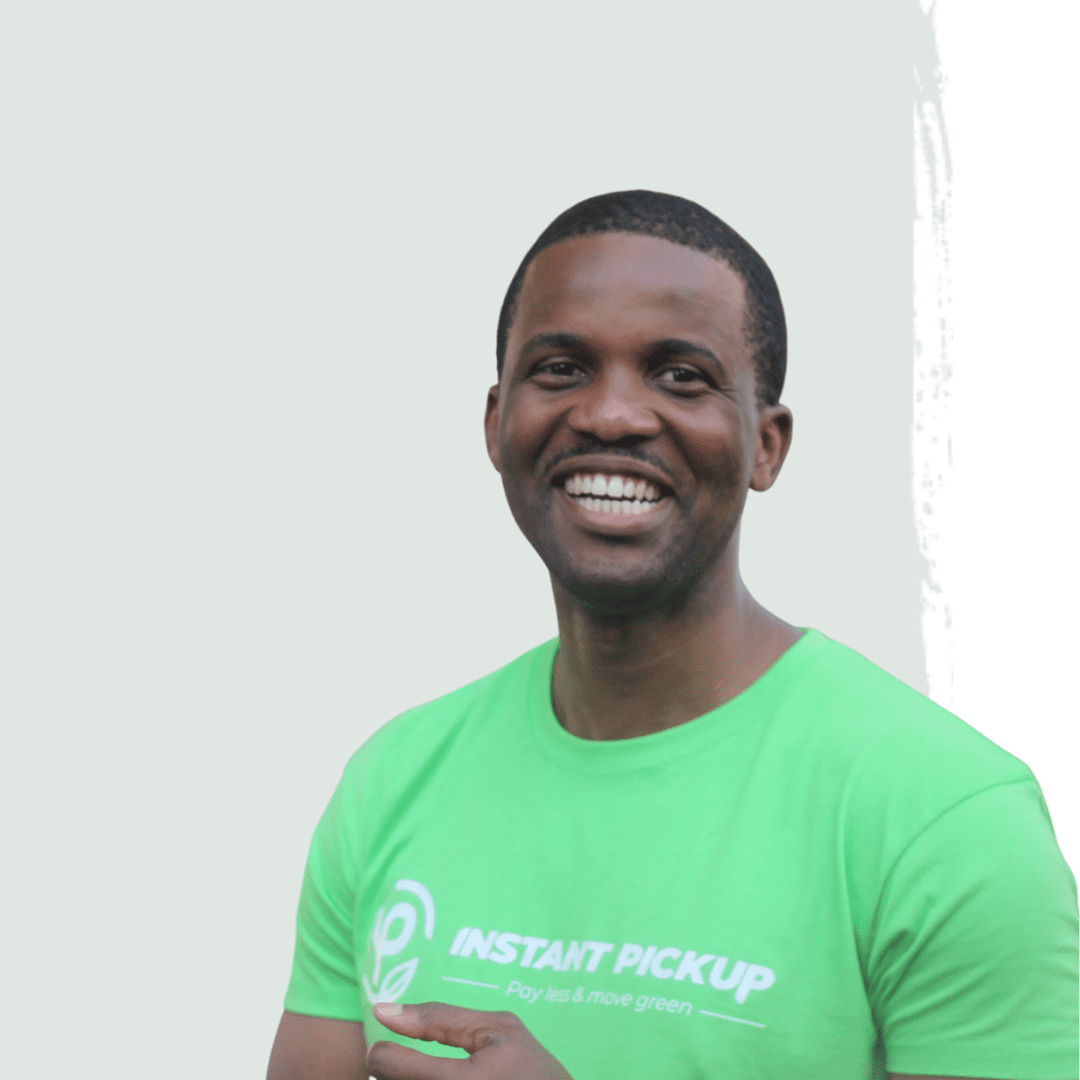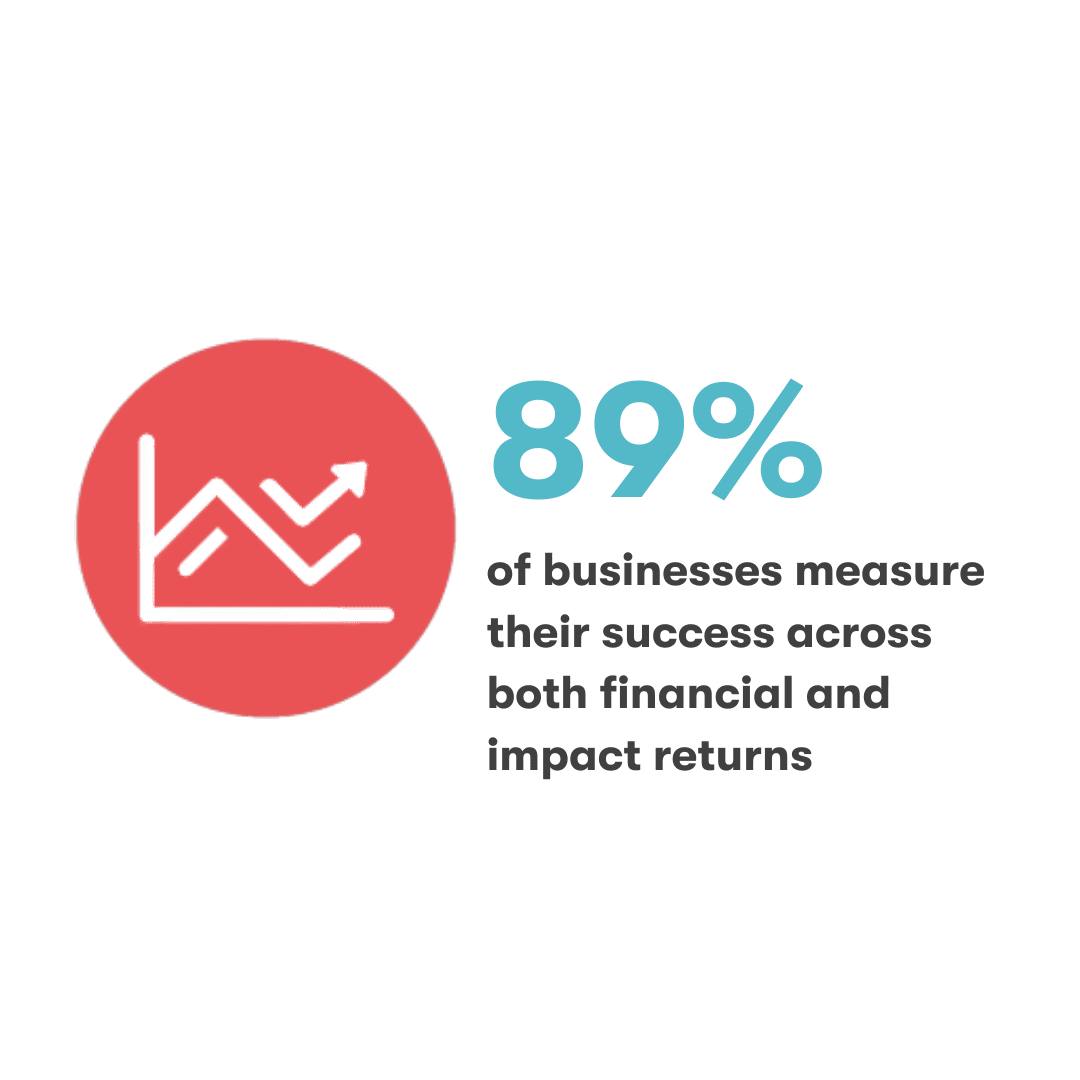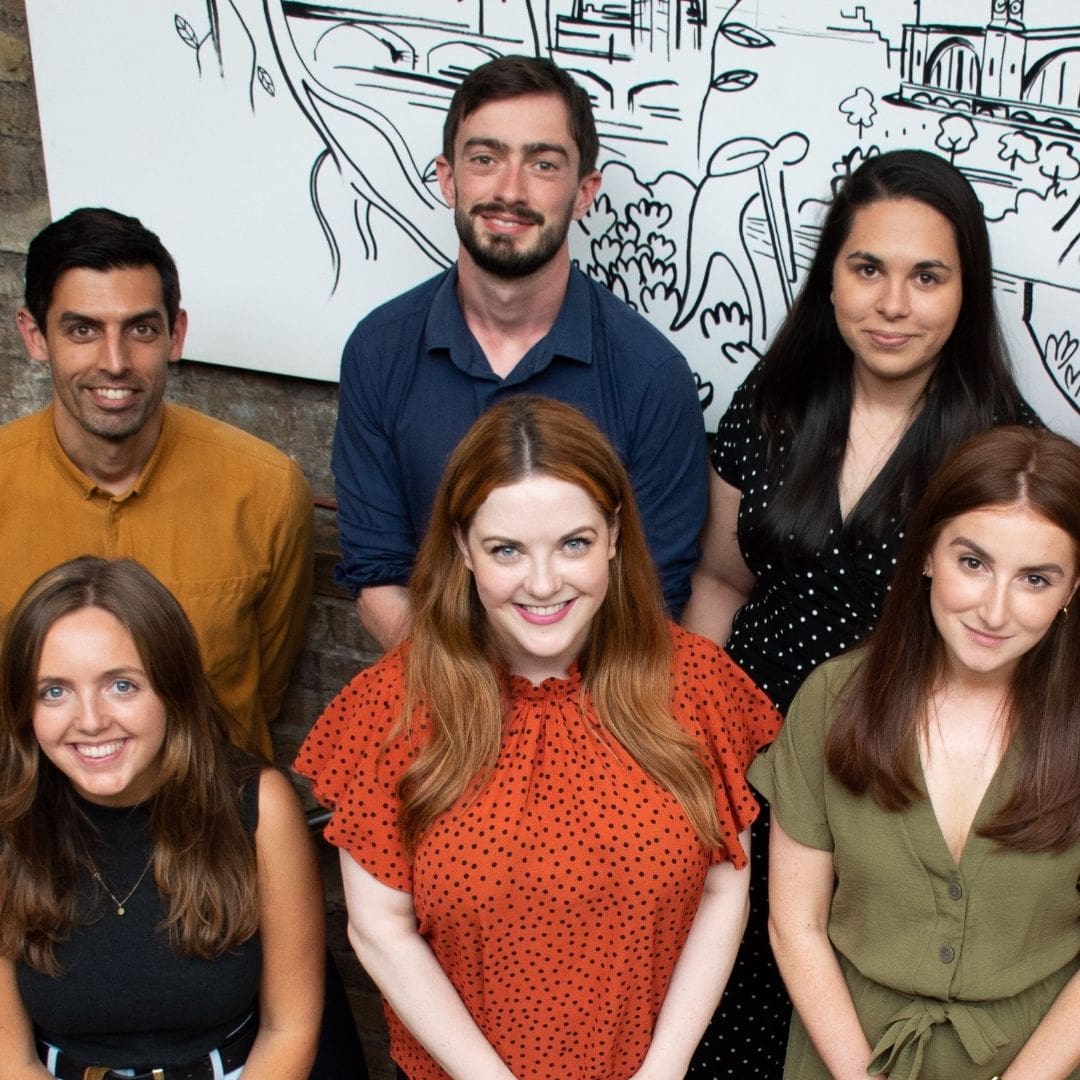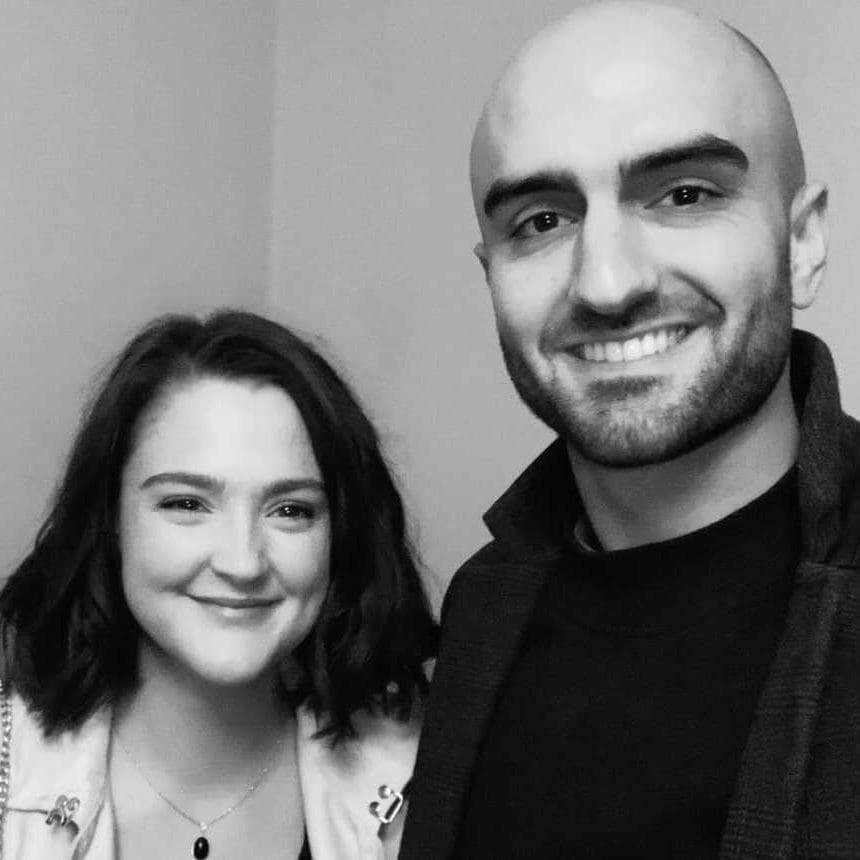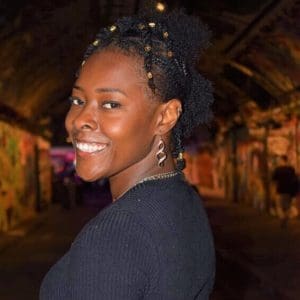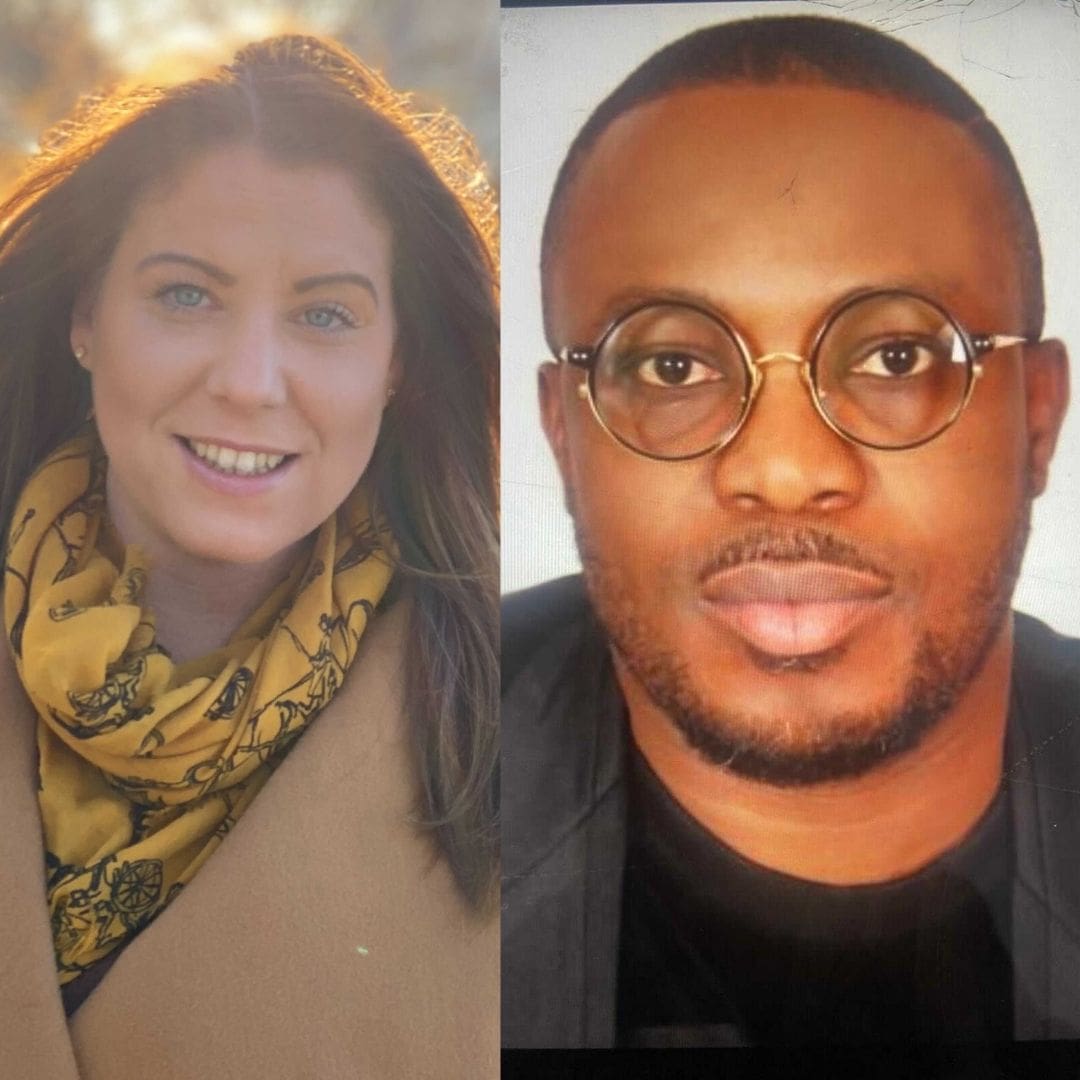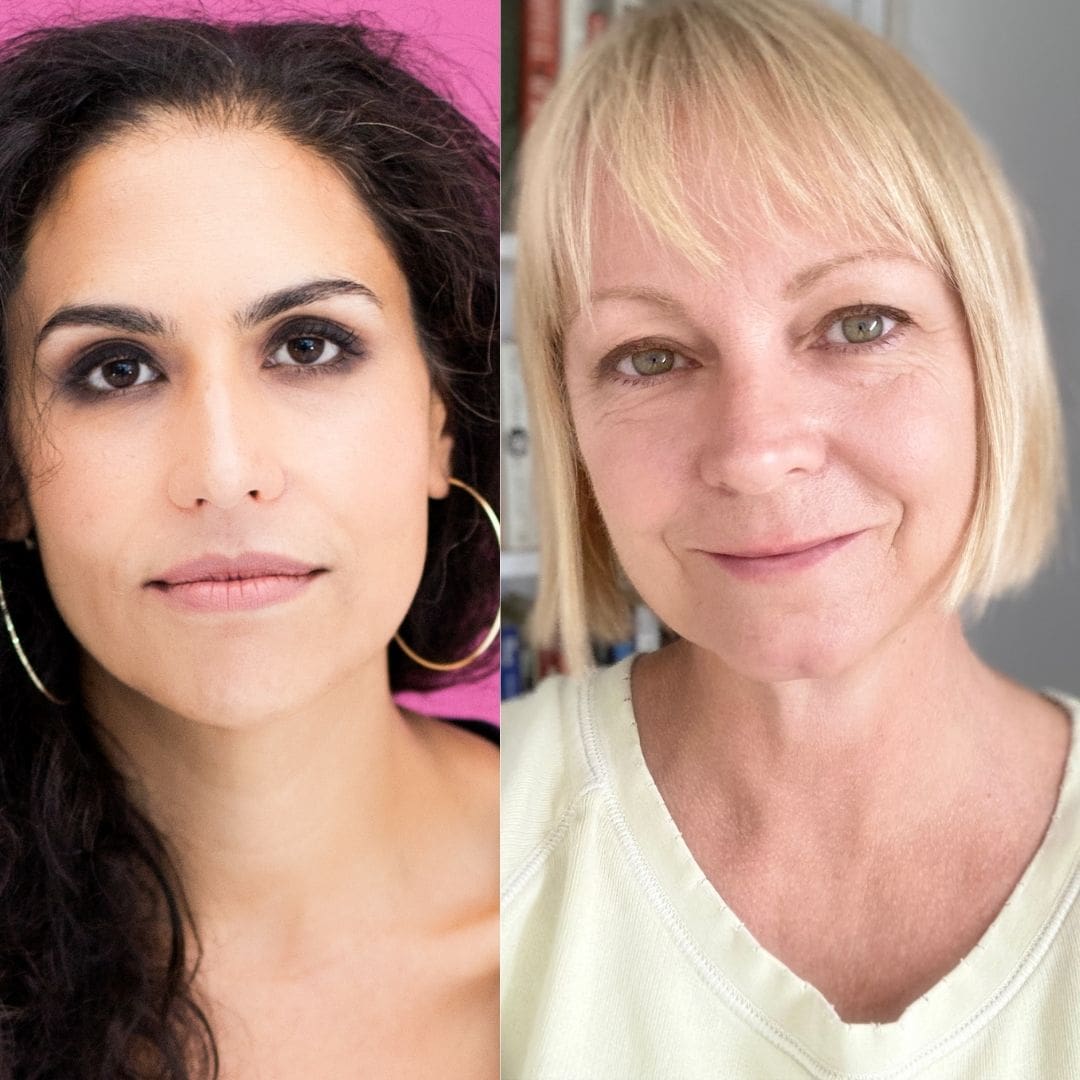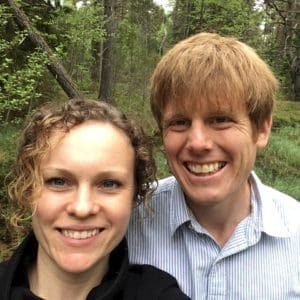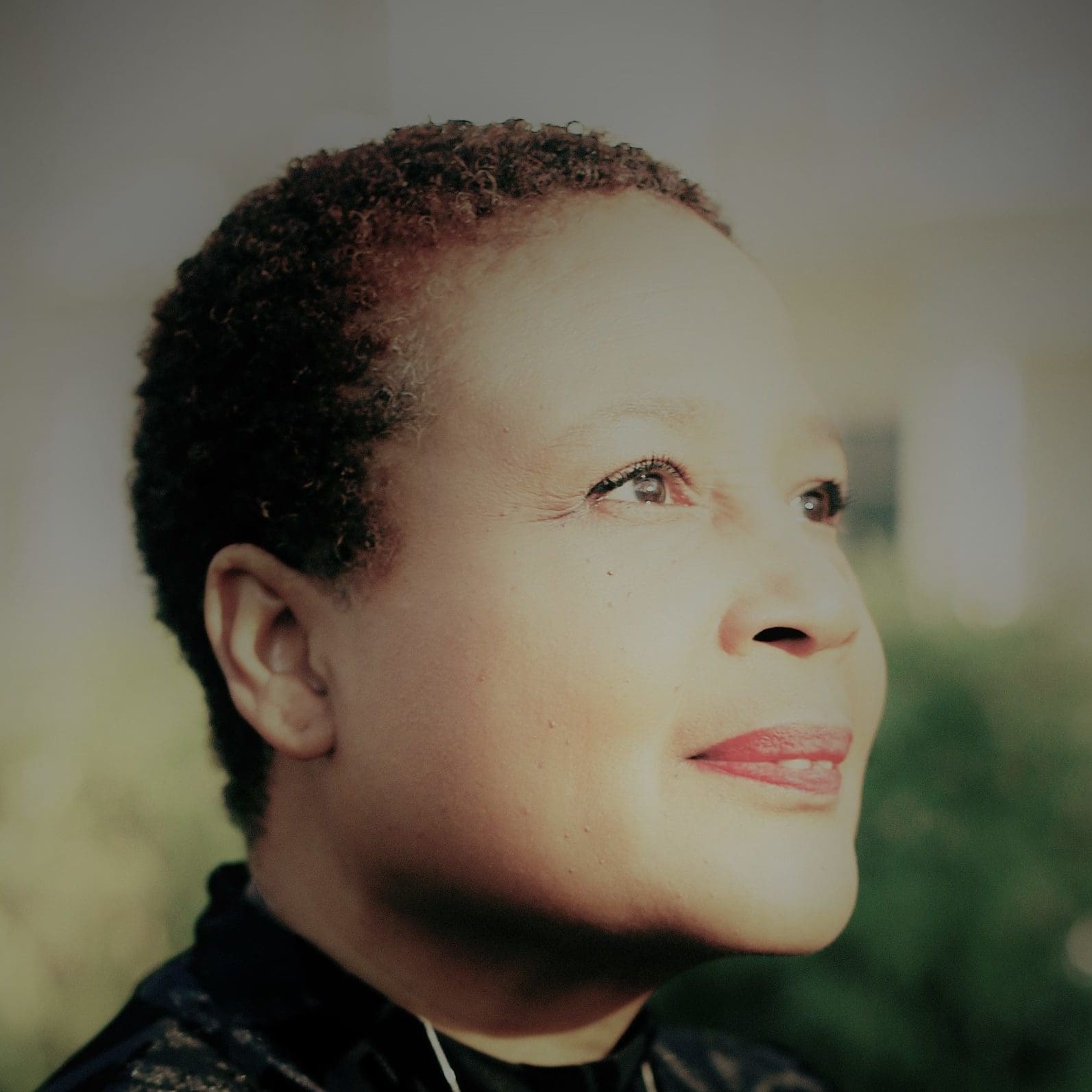While we still face the effects of Covid-19, it’s clear that over the last year the world has shifted in some fundamental ways. We can’t go back to what was before – it’s time to harness the opportunities that lie ahead of us, and build back better. Discover how the Impact Hub King’s Cross community is Rebuilding our Future:
READ THE LATEST IMPACT REPORT
Here to Provoke Change
This means focusing on some key aspects of our society and planet that need immediate attention: Diversity, Equity & Inclusion, Food Systems, and Climate. From a New Roots participant tackling air pollution in London, to a coworking team closing the gender gap in the trades industry, our community is taking collective action to solve these challenges.
Impact Hub King’s Cross supports members along their entrepreneurial journey to help them reach their full potential and impact.
Why Read Our Report?
1. Gain insightful data from impact-driven entrepreneurs
2. Discover inspiring stories of social and environmental impact in action
3. Be inspired by collaborations across sectors and business-support programmes
READ THE LATEST IMPACT REPORT
If this content resonates with your work and mission, join as a member, explore our programmes or become a partner so we can #ProvokeChangeTogether.
For the third year running, we’re supporting local people from a Black, Asian and minority ethnic background with an interest in entrepreneurship.
Powered by GoDaddy, the New Roots programme helps turn ideas into thriving enterprises and careers, while accelerating diversity and inclusion to the entrepreneurial sector.
Meet the 20 individuals joining the programme cohort:
New Roots Cohort 2021/22
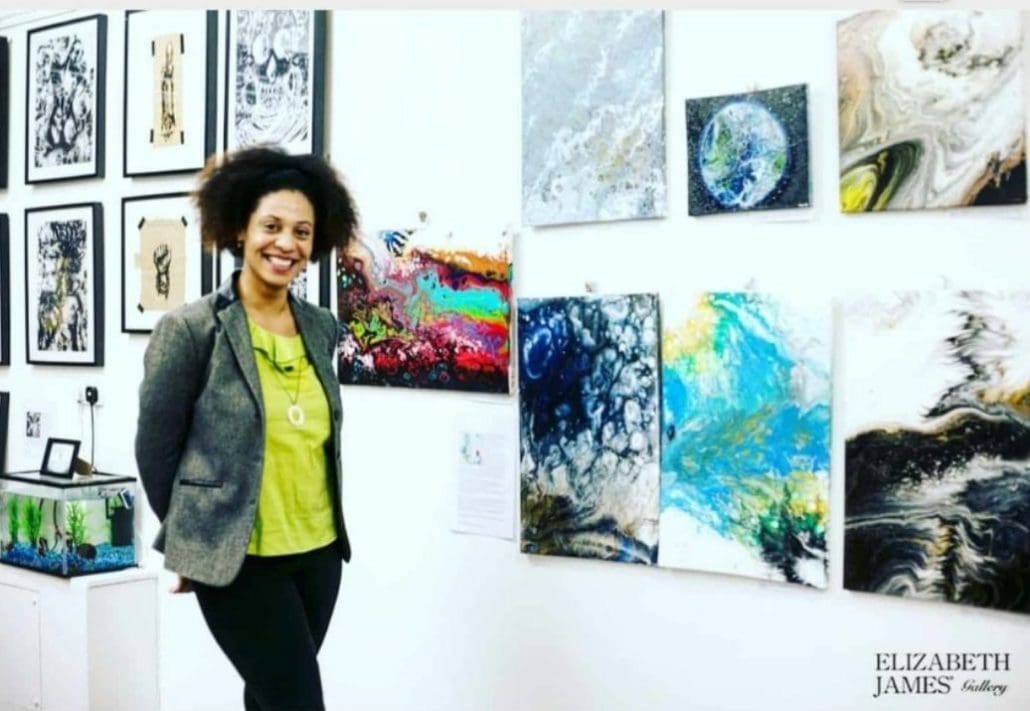
Aneta Ten
Aneta has a passion for painting. She feels she can best express herself through art and would like to pass that freedom and happiness on to people through her work.
Her ultimate goal is to dress as many homes and offices with her paintings, so it can be her sole channel of income.
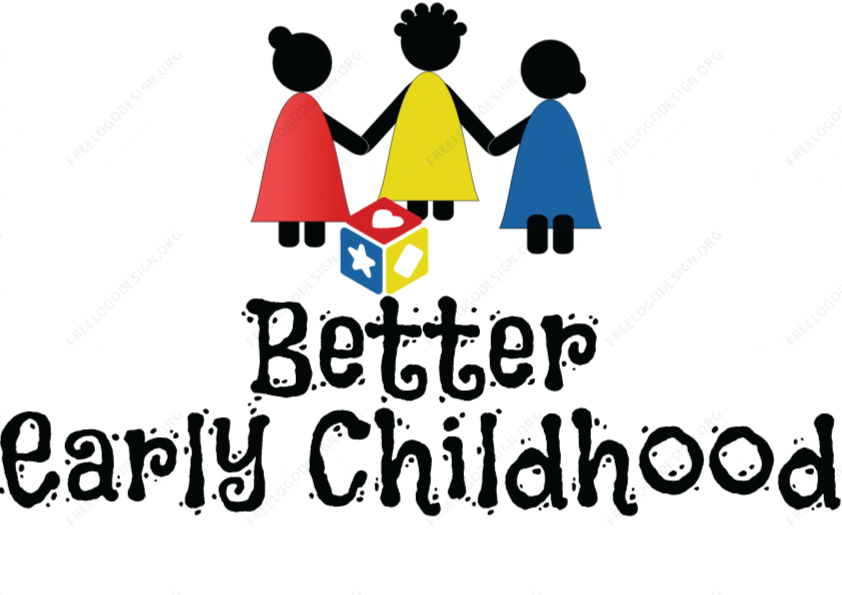
Ibrahim Khali
Ibrahim wants to contribute towards building better societies by focusing on early education for vulnerable children.
His ambition is to provide free early childhood education for children in developing countries, starting in small cities in Iraq and Syria and later expanding in MENA.
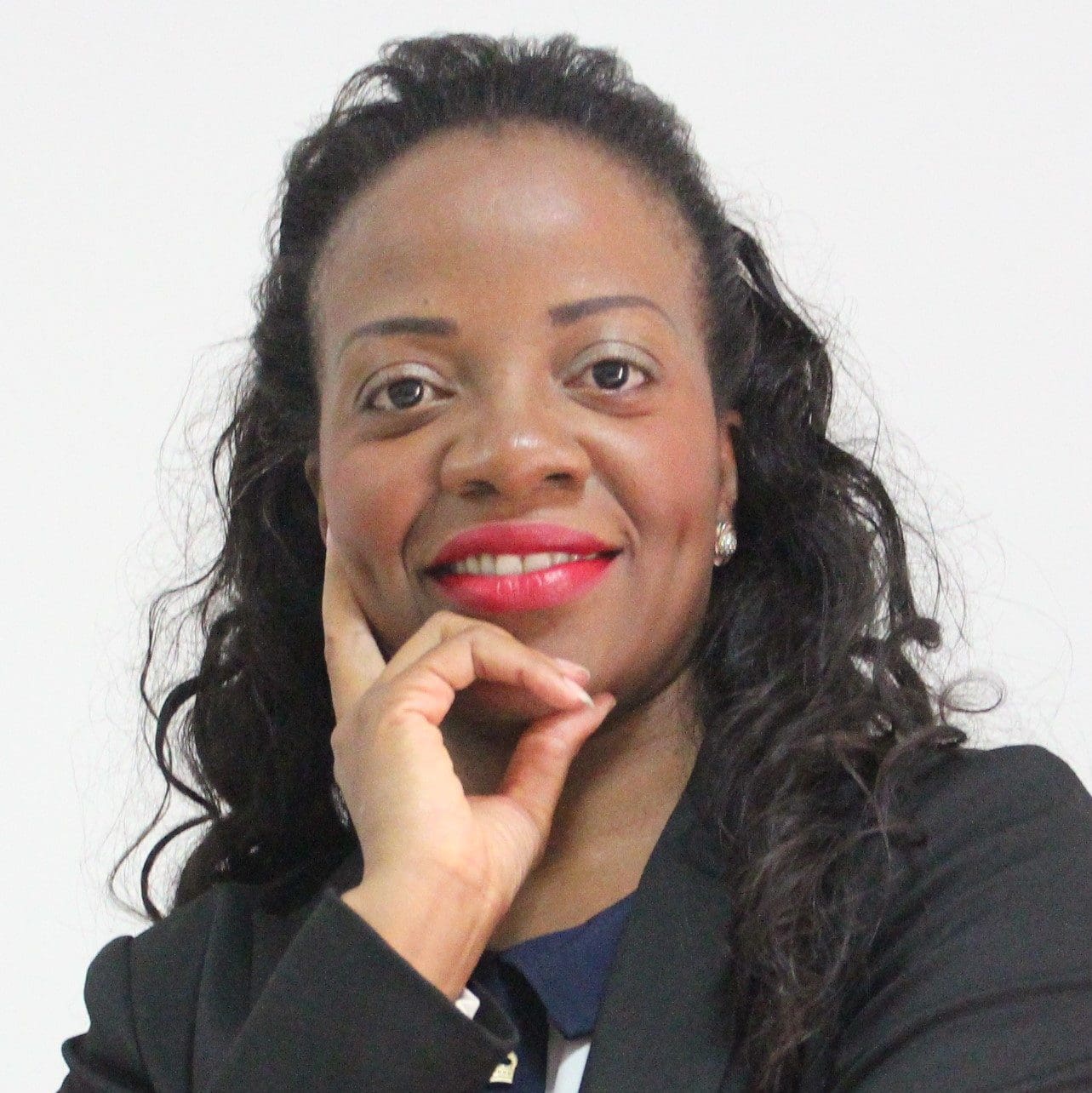
Kudielela Santana
Kudiela is passionate about helping others. This led her to start Management of Knowledge, a business consultancy and training company for startups, with the support of highly experienced and motivated mentors. They also tap into the local resources of councils, libraries and higher education language colleges.
The idea was born out of the need to support both UK companies looking to invest in Portuguese speaking countries, as well as supporting startups in the Portuguese speaking communities.
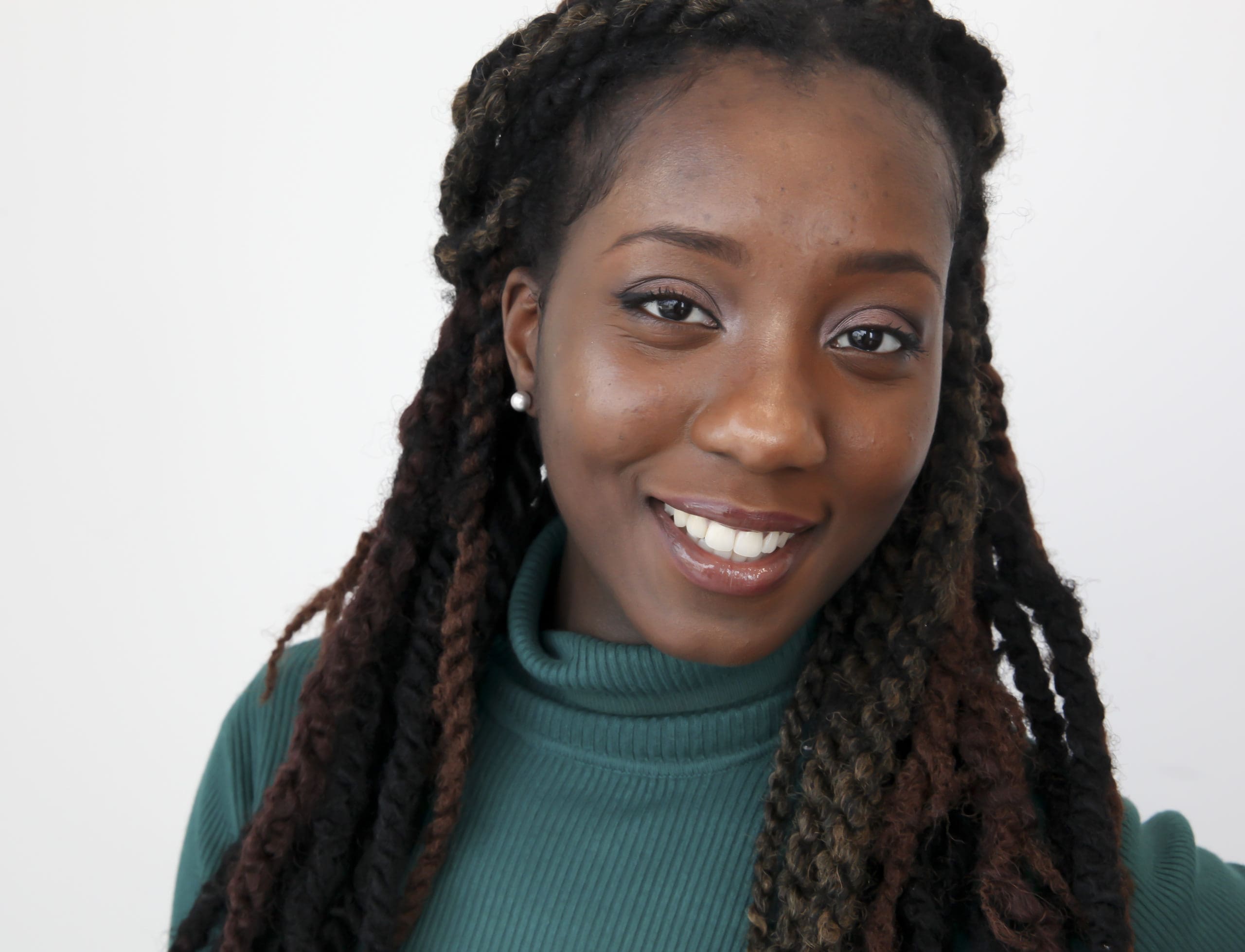
Makeda L. Cole
Makeda’s business idea is ‘rubbish’ – i.e. using environmental waste to create sustainable handbags. Her forward-thinking lifestyle brand is inspired by modern needs, heritage prints and traditional West African craftsmanship. The bags can be upcycled after use into other household items – minimising wastage through innovative design. It’s a disruptive statement piece in the market, crafted from discarded and renewable fibres to create unique bags.
The brand exists to meet consumer needs for ethical fashion and to address the environmental impact of fashion, by extending the product life-cycle and using recyclable packaging. The business will allow for social impact for socio-economic opportunities through the provision of income for local makers globally such as in West Africa, to enable them to support families and skills to empower their lives, creating a positive impact on urban and rural communities.
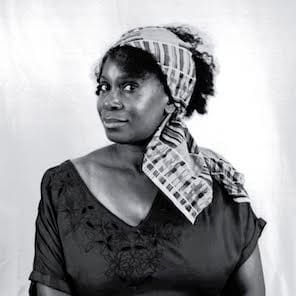
Marcia Michael
Marcia wants to develop creative art works that show thought and purpose. She wants to encourage co-creation, by involving others in the making process and providing a learning experience to grow from.
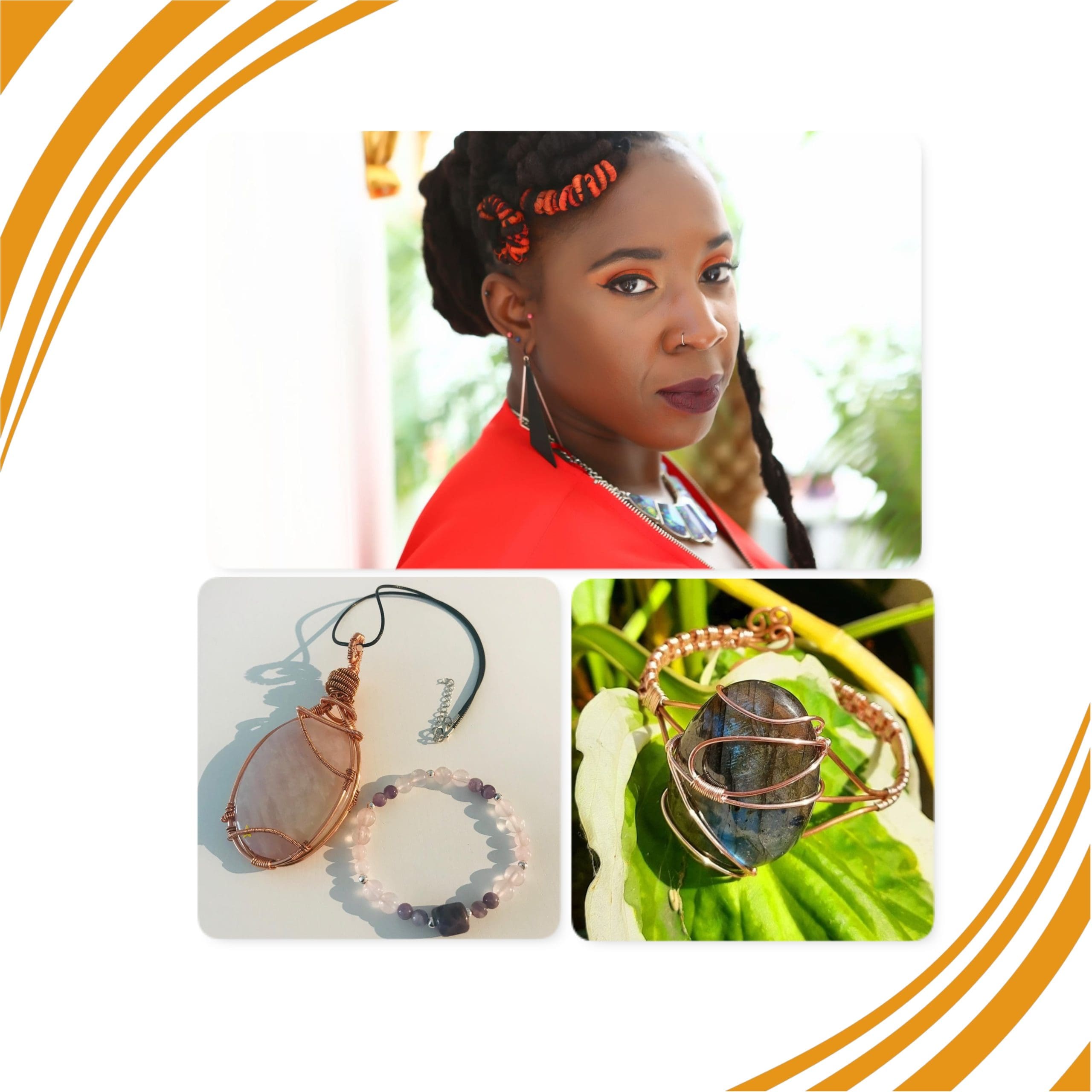
Nicole Als
Nicole aims to support wellbeing and self-care in a holistic way, while building connections within the community while being fully inclusive, affordable, and accessible.
She intends to sell alternative/holistic therapy services, as well as bespoke handmade crystal jewellery. It is a core value of the business to create make it accessible for those who are low-waged or unemployed.
Nicole’s ultimate dream is to build an enthusiastic team that is as passionate as her about the benefits of alternative therapies and holistic practice. In the future, she sees the service expanding into wellbeing and self-care retreats, offering varied options of therapies to individuals and groups, while building communities.
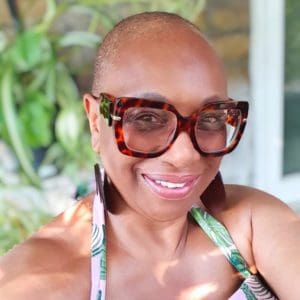
Valerie Irish
Valerie’s business is based on sharing her creations with others and hoping they derive pleasure as much as she gains by making them.
Her products include custom jewellery, embellished footwear, sewing bags and decorating fascinators, all with an Afro-Caribbean/westernised/international edge.
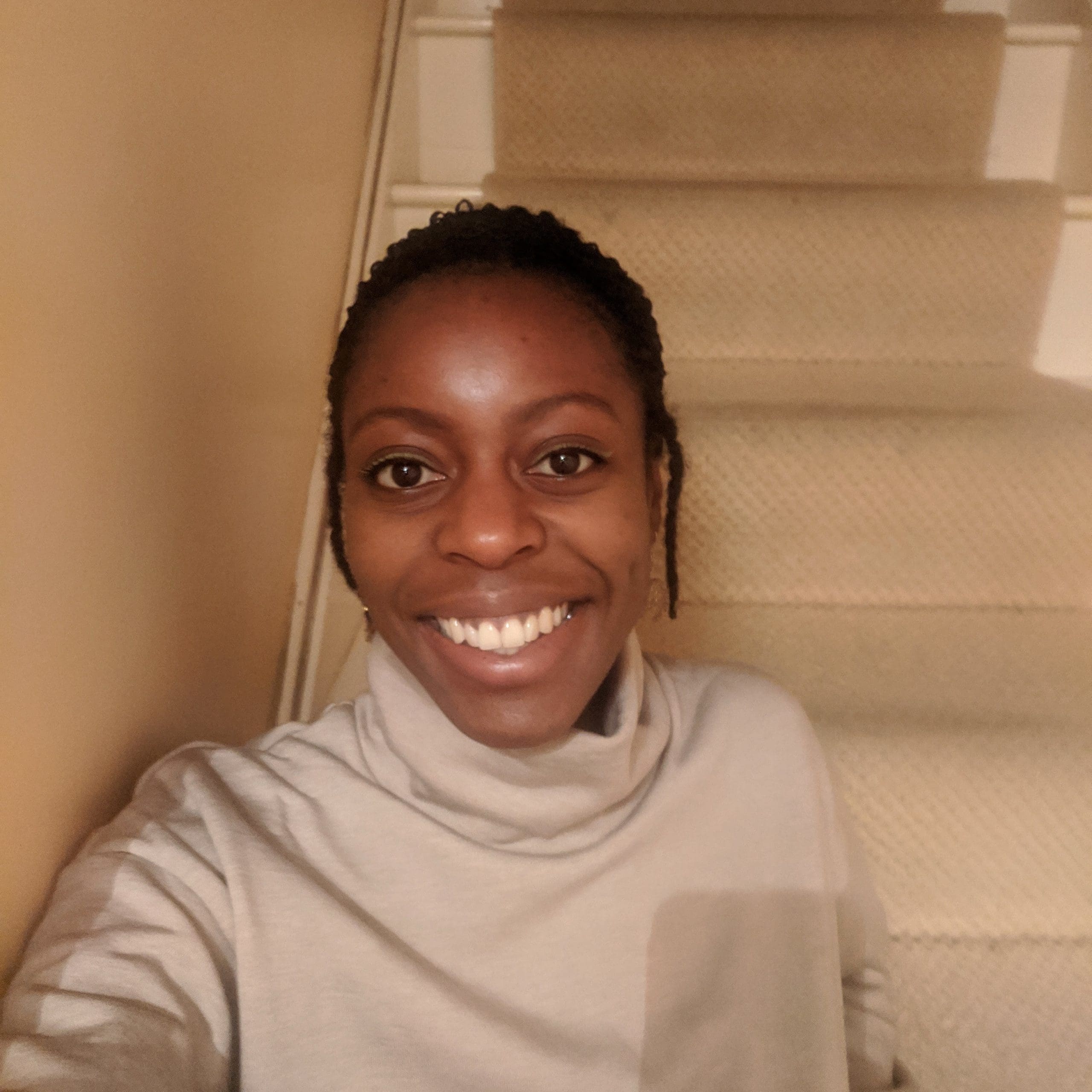
Temi Fajobi
Temi’s business is a stationery and wellbeing company that creates unique, artisan products inspired by African culture, heritage and lifestyle.
Her self-made and designed notebooks will be accompanied by a service in the form of wellness boxes that include their products and additional content aimed especially at people of colour to help them on their spiritual/wellness journey.
Temi’s long-term vision for the business includes teaching book-making skills to women who are refugees or victims of domestic abuse. They could then become brand ambassadors, employees, own shares, or franchise the business, empowering their individual financial situation.
Angie Realpe Palacios
Angie would like to set up an office and residential cleaning service to deliver across London. She hopes her business can expand and grow in order to provide fair pay and give back to the community on a regular basis.
Amariah Elliott
Currently a music student, Amariah wants to give customers the opportunity to create and design their own makeup organizer. Her dream for the business is to allow people to use their creativity and apply it to something that they use daily.
Anthony Neunie
With almost 20 years of experience as both a chef and a boxer, Anthony aims to combine these two passions to support young people as well as others to live a clean and healthy lifestyle. Having experienced first-hand the benefits, he hopes to provide fitness & boxing training as well as cooking lessons, targeting those living by themselves on how to budget and eat healthily.
The dream would be to have a combined boxing gym and kitchen space, with room for other potential activities.
Burhan Ghafoori
Burhan hopes to provide a vehicle breakdown recovery service to support those who are stuck at home or on the road.
Chucky Omo
Inspired by the desire to explore conformity, Chucky hopes to gamify the experience of purchasing socks by offering odd and even pairs. He hopes to also raise awareness of divergence and generally thinking outside of the box.
As well as being sustainably made, Chucky hopes to set up a business model where a percentage of the earnings go towards charitable distribution of socks.
Claire Wan
Claire has been selling her unique ceramics for a long time to individuals, as well as retailers and restaurants. She’s also working on a new venture to sell ceramics specifically for pets. This will be a niche range of ceramic bowls and slow feeders as sustainable and/or personalised products for cats and dogs (initially). Claire’s hope is to make sustainability a key message for her products.
Jennifer Otu
Jennifer hopes to set up a podcast. She’s motivated by helping others and making a positive impact that changes society for the better.
Marie Ikong Heuy
Marie wants to help curvy women to be able to purchase fashion clothing to their sizes, while empowering all women to love the evolution of their body with the curve. She aimes to achieve this by making handmade bespoke garments for curvy women, as well as crochet wool scarfs.
Penelope Diaz
Penelope is an advocate for creative thinking for all, using playful ways to educate and engage with the local area.
She set up and has coordinated a gallery space and several exhibitions in Islington over the last 7 years. Now, she would like to transform the red kiosk phone boxes in Camden and Islington into exhibition spaces. Using creative writing as a way to express ideas, share memories and socially engage with the surrounding area – she would invite artists, locals, families, young and old people to submit/share memories, and photographs to create works that could be displayed. She would like to have an emphasis on supporting those people in the community with different types of neurodiversity.
Yasmin Aktar
Yasmin wants to create an online platform where people can submit anonymous prayers which are then shared anonymously so that collectively people can pray. There have been numerous times when individuals are struggling silently and alone. This will allow them to share what they are going through deep inside without the fear of any judgement. When you know that there is someone out there praying for you, it gives a level of comfort and relief.
Want to find out more about business support at Impact Hub King’s Cross?
Discover our current programmes.
Get the latest opportunities, news, and offers to inspire, connect and enable you
Effective partnerships have become an essential part of doing business, whether you’re a social entrepreneur getting started, or an established business looking to innovate. Not only are they suitable for completing projects, but they are also critical to gaining access to networks that enable you to expand your reach or find new customers. However, working with partners is not always easy.
With effective partnerships, both you and partners can gain benefits that are just the same or fair. Imagine if your relationship with partners doesn’t work out due to preventable issues, you’ll risk losing valuable time and potentially damaging your reputation. Relationship building takes time and a significant amount of effort.
So, how do you create partnerships that are effective and ensure the end result is successful? Here are six essentials for building effective partnerships:
1. Get clear on your mission
This is one of the most important things because if it’s unclear how everyone feels about each other and where their boundaries lie, it will only lead to stress and problems later on down the road. You need to be crystal clear with your expectations and missions so that you know what you’re getting yourself into and aren’t blindsided later.
You need both sides to be open and honest about the feelings. Also, know what’s expected from each other before anything else happens. If someone isn’t being transparent or honest, the relationship should not move forward until they are.
2. Understand that successes and failures are shared relatively equally
Both partners have an understanding that failures are equally shared, but so are successes. Otherwise, one person may feel they have the upper hand or are doing more work than the other, which can lead to problems later on. This doesn’t mean that things need to be split 50/50 all of the time.
However, you need to convince your future partners about this matter beforehand. Things like success/failure share should be discussed upfront. You could discuss how one thing should be shared at how much percentage both sides agree on.
3. Contracts should be made
If you find yourself in a situation where it’s necessary to put something in writing, then you should make sure that it’s done properly through a contract or agreement if possible.
A contract shouldn’t be used as a tool for controlling people and allowing them to walk all over you in the process. It should be a means for ensuring that everyone is on the same page about what’s supposed to happen and when it’s expected to occur while ensuring everyone involved has given their approval.
4. Different people have different strengths
Everyone has something they’re good at, and when it comes to working with others, knowing one of your partner’s strengths can help make things easier overall. If someone is more of an expert in managing business operations or developing innovation trends, don’t feel like you need to do everything yourself without letting them help out. The reverse can also be confirmed if you excel in some areas but others don’t.
The key here is to communicate with partners what you’re expert or lacking in a certain situation. That way, they can act upon the thing you have less expertise on. In the same way, you should understand your partners’ strengths in order to work efficiently.
5. Communication is key
This can’t be stressed enough. Communication is vital for everything related to building a solid relationship with any kind of business person, whether it be one on one or within a group setting. If communication breaks down, so will the entire partnership or friendship. Keep communication open at all times and never assume what the other person is thinking.
It’s essential to communicate everyone’s role within the partnership to be on the same page from day one. Make sure all partners understand their role, what they are responsible for, and the schedule of milestones.
6. Build a team of all different skill sets
When you’re putting together your team, be sure to hire people who complement each other’s skills and personalities. Hire people who have strengths and abilities that can fill in gaps or cover up weaknesses. Also, don’t forget to include people who think differently than you – it will help stimulate new ideas and bring about unique solutions to problems.
Conclusion
Once you’ve put the above steps in place, it’s time to get your business moving. You should be ready to start enjoying some of the benefits of running a partnership. Do it right, and forget about all that you can gain from an effective working relationship with another business owner. We hope this guide has helped prepare you for making your partnership work!
Author
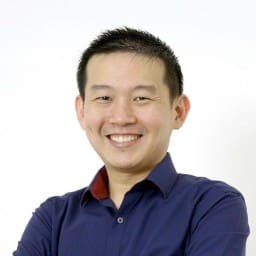
Andre Oentoro is the founder of Breadnbeyond, an award-winning explainer video company. He helps businesses increase conversion rates, close more sales, and get positive ROI from explainer videos (in that order).
Twitter: @breadnbeyond
Email: [email protected]
LinkedIn: https://www.linkedin.com/in/andreoentoro/
Get the latest opportunities, news, and offers to inspire, connect and enable you
Zey Binboga is the Programmes Manager at Kurdish House London. Last year she became a participant on New Roots, our programme for aspiring entrepreneurs from a Black, Asian and minority ethnic background, and powered by GoDaddy.
With an interest in ethnic identity, she shares her career journey, securing over £10,000 funding during the programme, and future ambitions.
What led you to entrepreneurship?
‘As a child of refugees, I struggled with pressure from my family and community regarding what my career should look like. My mother fled the war in Cyprus, and my father fled persecution in Turkey, and they came to build a better life in the U.K. My whole life, I was being raised with the expectation to study at a prestigious university and get a prestigious career; eventually, after changing courses, I stopped studying. My sense of wanting to empower people economically started when I was 18, and I started my social media marketing business; I found solace in being my own boss.
Later on, I started working with Kurdish House London (KHL), a network of Kurdish entrepreneurs and professionals. I met role models who came from my background, proud of their identity and contributing to society. This profoundly affected how I now view my cultural identity and has boosted my self-confidence and self-worth.
KHL was based in Impact Hub King’s Cross for years, which was an excellent opportunity for me to connect with the fantastic staff and introduce our members to the great opportunities Impact Hub has to offer. A significant programme being New Roots, which I also completed. At KHL, we helped 10 Kurdish entrepreneurs onto the programme. In New Roots 1.0, Kurds were the largest represented ethnic minority.’
What value did you gain from New Roots?
‘Displaced was a business idea I came up with soon before I applied for New Roots. It was inspired by my newfound pride and intrigue in ethnic identity, especially since I had grown up predominantly with Cypriot people, never fully appreciating my Kurdish identity until I got involved with KHL. Displaced started as a card game to facilitate conversations on cultural and ethnic identity among diaspora communities.
Through New Roots, I learned things that helped me with Displaced and KHL. Workshops on the business model canvas, pitching, and finances were particularly impactful. Through transparency and great conversations with the Programme Manager Samira, I learned about running programmes in a non-profit, which helped me develop ones for KHL.
Through the programme, I realised how complicated creating a card game would be with my current access to resources. I decided to keep the card idea for the future and instead build workshops that facilitate the conversations we wanted the cards to trigger. By the end of the New Roots programme, we secured over £10,000 funding and designed the Generational Immigration Project (GIP) through a partnership with a community organisation.’
What have been your achievements and future goals?
‘We designed and piloted the Generational Immigration Project, which explored the experiences of three generations of immigrants. Some of our participants were family members. They even learned things they had never heard of before, e.g. my mother found out about the discrimination her sister experienced when they first moved to London as they fled the war in Cyprus. We learned about the expectations and experiences of different generations and helped establish bridges between the ages to develop understanding and awareness of individual experiences. We conducted detailed assessments of 80 participants through GIP and ran workshops for over 60 participants across 3 generations from Turkish-speaking communities.
Our short-term goal is to train more volunteers with lived experience from various ethnic backgrounds to pilot the Generational Immigration Project. We want to expand our workshops and Generational Immigration Project to more communities. We’d also like to share the stories we have gathered through art forms, such as film and books. Our long-term goals are to partner with organisations to improve their services and engage young adults from minority backgrounds. We’d also like to create a card game where young people from ethnic minorities can have the conversations from our workshops in their own homes.’
We’ll soon be releasing the profiles of our current New Roots cohort – keep an eye out for our upcoming post or get the latest updates on our monthly newsletter!
Get the latest opportunities, news, and offers to inspire, connect and enable you
In 2013 a 9-year-old girl from London, Ella Kissi-Debrah, sadly passed away due to an asthma attack and became the first person in the UK to have air pollution listed as a cause of death.
The story particularly resonated with Bejoseholo Aikhomun, who learned about the case in a documentary a few years later. With an existing passion for sustainability, he decided to take action.
Last year Bejoseholo became a participant on New Roots, our programme for aspiring entrepreneurs from a Black, Asian and minority ethnic background, and powered by GoDaddy. He joined with the idea Instant Pickup, a platform for eco-friendly van services. Through peer-to-peer support, training and mentoring, Bejoseholo was able to bring his business concept closer to reality.
In the midst of COP26, we caught up with the New Roots alumnus to hear about his entrepreneurial ambitions for tackling climate change, as well as his views on inclusive business.
What challenge are you looking to solve?
‘I’m on a mission to solve the huge problem of air pollution within the logistics sector.’
How does your business aim to achieve this?
‘By developing one of the first on-demand platforms where organisations and individuals can find eco-friendly vans for their same-day logistics needs.
Instant Pickup uses a triadic marketplace business model, bringing together companies and individuals in need of sustainable vans with eco-friendly van drivers. We do not own any electric vans but instead build our fleet through a network. We have transparent pricing and take a 16.5% revenue share from each booking on the platform.’
What are your ambitions for the business?
‘In the short term, our platform will remove the key barriers to accessing low carbon transport. We believe it will also incentivize more van drivers to go electric, once they see proven demand. According to an IBIS report on removal services in the UK, 68.7% of vans in the sector are driven by self-employed drivers. Consequently, they need to see some traction before making the transition to electric vans.
In the long term, this project will directly contribute towards the Government’s net-zero strategy and clean growth strategy created by the Department for Business, Energy and Industrial Strategy.
As a result, we envisage that:
- In the environmental sphere, it will reduce greenhouse gas emissions help to combat air pollution in the capital and, while furthering the uptake of green vehicles.
- In the social sphere, it will help normalise alternative fuel vans as a viable form of transport and supply chain solution, creating more sustainable jobs in the transport sector. It will also improve health by reducing air pollution.
- In the economic sphere, it will allow drivers and companies to save money and boost a sustainable post-Covid 19 recovery, by removing the need to buy their own electric vans, but rather share vehicles and help reduce congestion. Thus, Instant Pickup will help contribute to rebuilding the national economy without compromising future generations of Londoners.’
What value did you see from an inclusion-focused programme?
‘The New Roots programme has been amazing, as it’s important to support startups in general as they have become the backbone of digital development and innovation.
However, in this era of technology and globalisation, more effort should be made to support founders from diverse cultural backgrounds, as diversifying the startup space provides a new perspective in the industry. It allows more opportunities for founders and helps to reach an untapped market of consumers who are experiencing everyday problems but are not easily identified by people who don’t have an ethnic minority background.
Consequently, by working with diverse founders, the New Roots programme has been able to provide support, mentorship and introduced us to a wide community, which we wouldn’t have had access to otherwise. I am extremely grateful to the New Roots programme team, GoDaddy, and Impact Hub King’s Cross.’
Instant Pickup is getting ready to open its (van) doors to the public – keep an eye out for the latest news on their Twitter and Instagram channels.
Climate justice can’t happen without racial, social, and intergenerational justice.
That’s why, alongside running New Roots for the 3rd year, we’re developing a new Circular City programme, which will support local people to tackle climate change, as well as promote inclusion in the sustainability sector.
Want to stay updated on the progress and launch? Be sure to sign-up below to be in the know.
Get the latest opportunities, news, and offers to inspire, connect and enable you
This week we’re seeing global leaders from across the world gather for the COP26 conference, to help shape the future of our climate. What’s evident from this major event is that collaboration is key. Without it, we can’t achieve the scale of impact that’s required to make a significant difference.
Here are 7 examples of climate-focused collaborative action from the community:
Stopping chemical harm
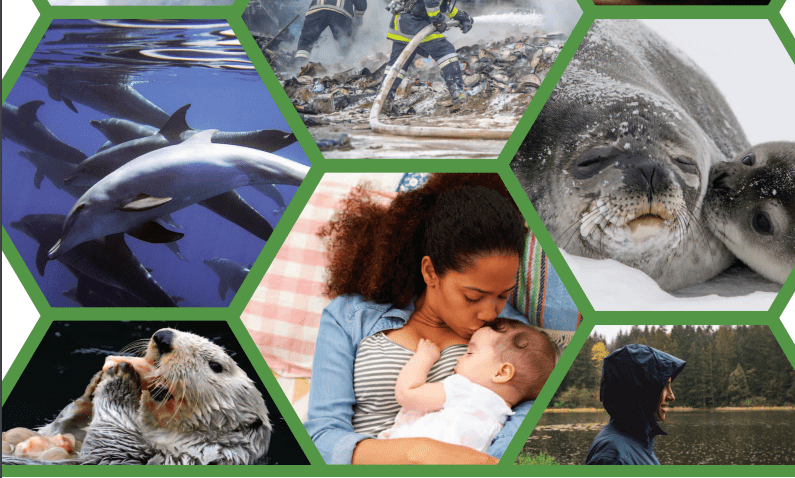
Chem Trust aims is to prevent synthetic chemicals from causing long-term damage to wildlife or humans.
Collaboration is key to how CHEM Trust achieves this. They work with other NGOs in the UK and the EU to create a unified voice around the importance of legislating against harmful chemicals that are damaging the health of wildlife and the environment.
‘We hope COP26 will be an opportunity for the interconnections between the climate, biodiversity and chemical pollution crises to be better understood and actions to tackle all three are prioritised‘.
Linking food and climate
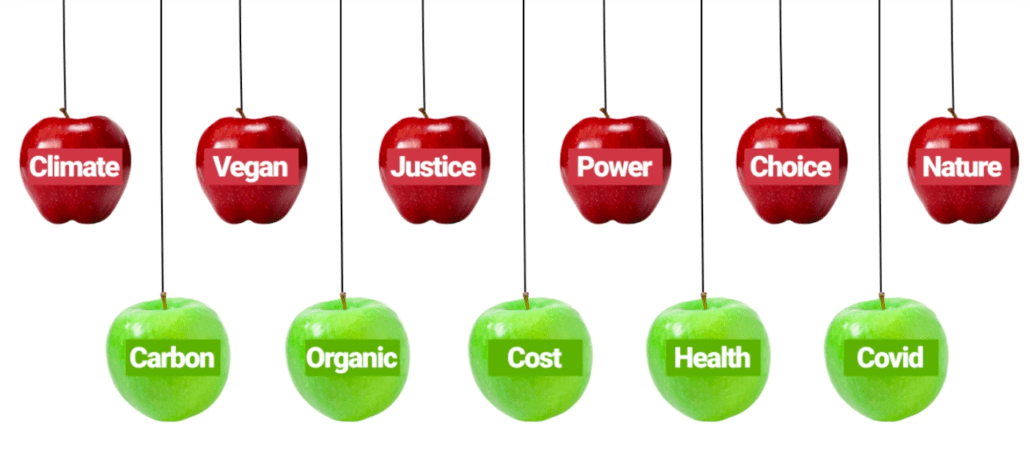
Stemmed from a relationship with our long-standing member Food Ethics Council, Food Talks is an event series that aims to stimulate debate and constructive thinking about the issues that surround the world of food.
With climate on the front of our minds, this year’s overarching theme has been ‘Food, climate, everyone’. We brought together a range of speakers to discuss how food can help address the climate emergency, as well as what a good COP26 would look like for agriculture and our food system.
This event series is delivered in partnership with Organico, and London Food Link, part of Sustain.
Developing learning materials
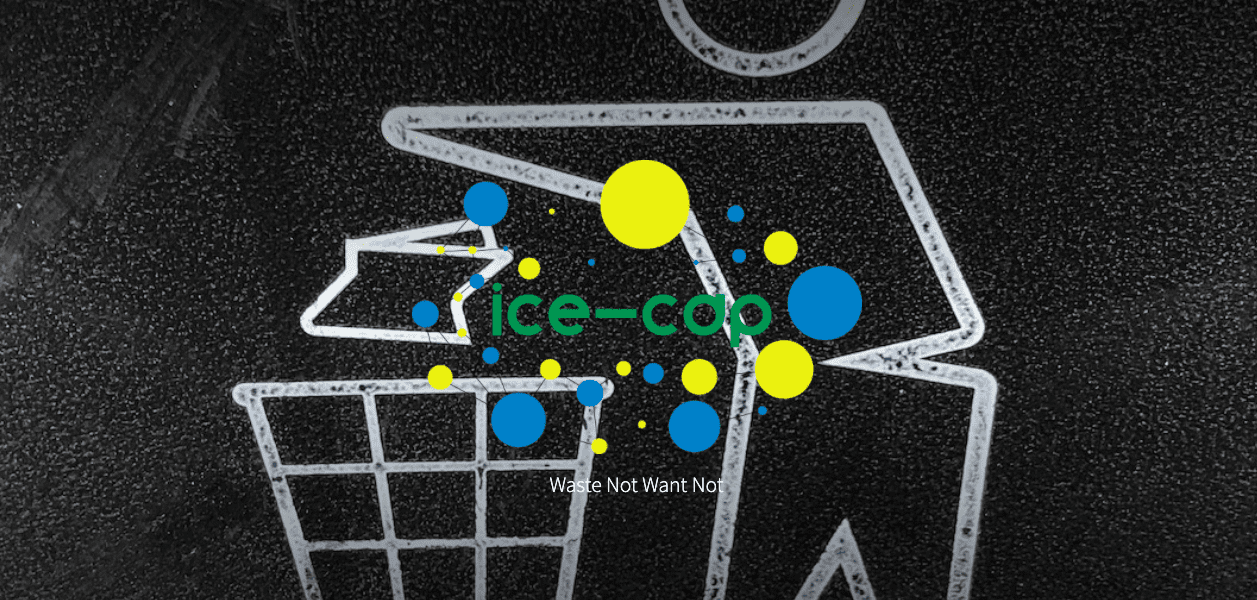
Creative Exchange is a social enterprise that specialises in building partnerships and networks to help small, creative businesses and organisations develop and grow.
They have worked with 6 EU partner countries on the ICE-CAP project, a comprehensive family learning programme around circular economy.
It includes a range of materials such as comic strips, WebQuests, ready-made lesson plans for teachers and trainers and useful material activists. To request the free content, send an email.
Engaging in the conversation
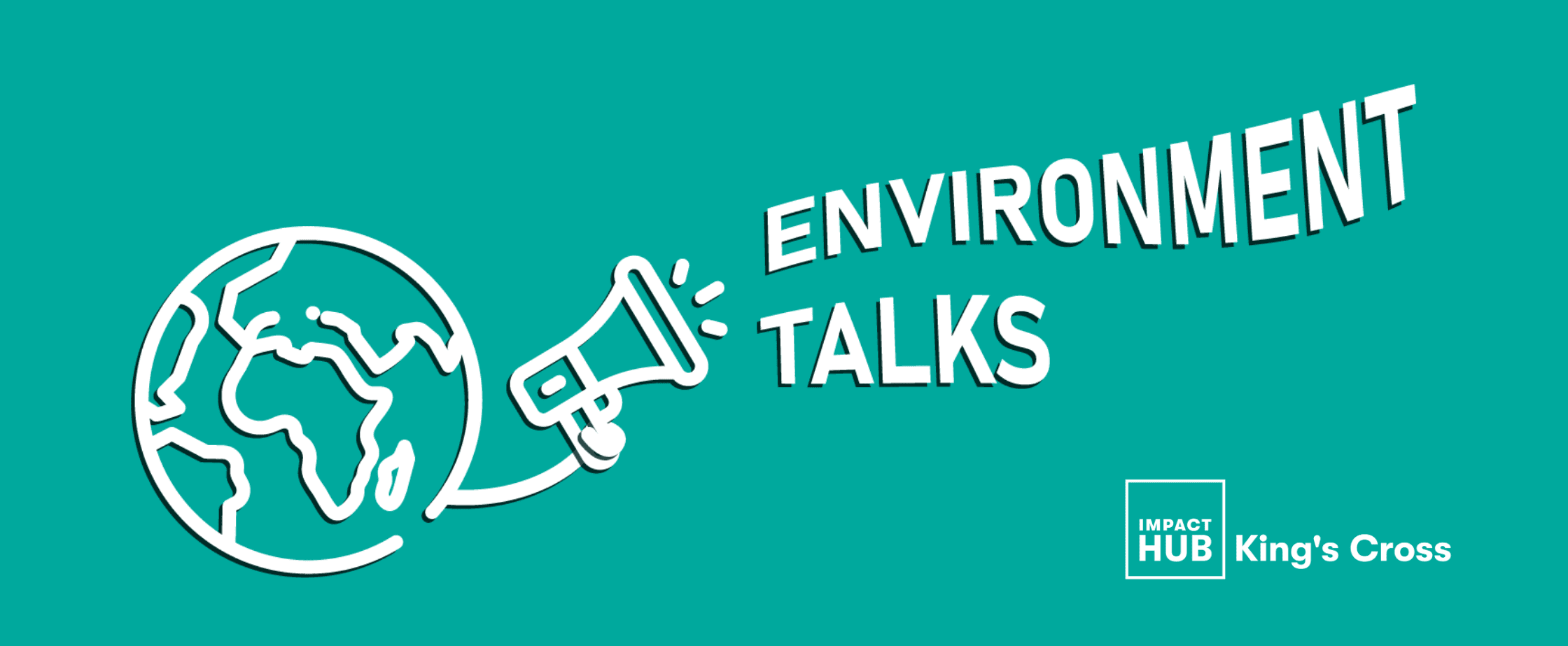
Environment Talks is an event series aiming to tackle climate change in an interactive and educational way. Delivered in partnership with our in-house sustainability expert Stav Friedman, these sessions cover a range of current topics and leave you with actionable takeaways to help you become more sustainable.
Over the last year we have collaborated with a range of partners, including KeepCup, Make My Money Matter, Hubbub, and Camden Council.
You can access a range of recordings and useful toolkits on our Events Overview page.
Generating new solutions

Impact Hub is a partner of Climathon, a city-based programme created by EIT Climate-KIC that offers a clear pathway to action and interaction – an opportunity for cities and citizens to co-create local ideas to shared climate challenges.
This year, 16 Impact Hubs, from Hamburg to San Salvador, ran a Climathon in their local city. Impact Hub King’s Cross co-led Climathon London in 2020.
Reducing our footprint
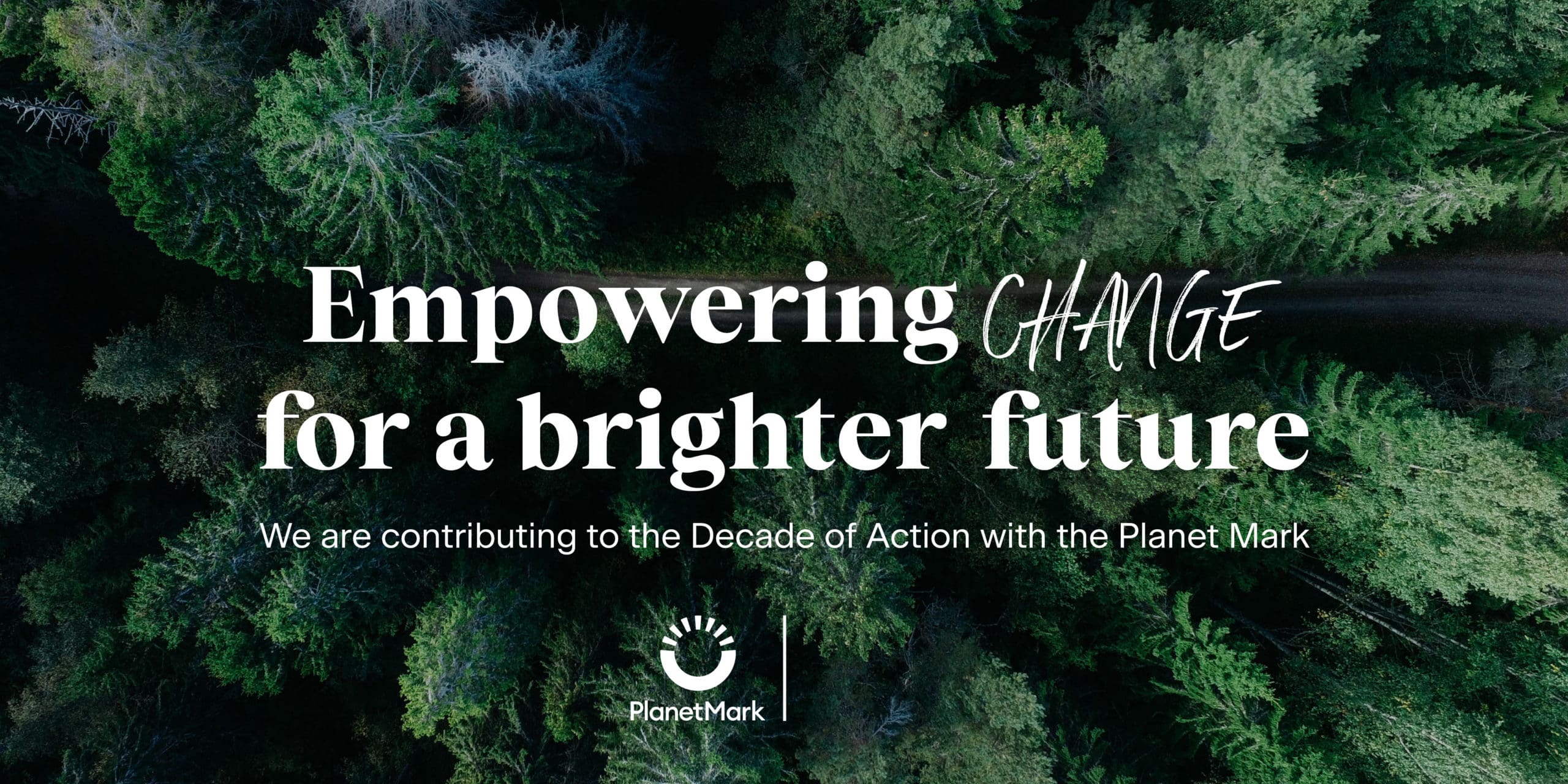
We joined Planet Mark this year to help address our own carbon footprint. After receiving our Measurement certification, we now have a good grasp on our current impact and are therefore ready to implementing new changes and processes in order to reduce our carbon emissions across the organisation.
Creating a circular city

We are in the process of developing a new programme that supports entrepreneurs to establish circular economy solutions. Powered by JP Morgan, the aim is to create a more interconnected, inclusive and circular economy within the target boroughs of Islington, Camden, Tower Hamlets and Newham and more widely across London.
We hope the programme helps to increase awareness, reduce waste and improve consumption habits at a business and consumer level. More updates coming soon!
Want to become part of a collaborative community? Discover our coworking memberships or business support programmes.
Get the latest opportunities, news, and offers to inspire, connect and enable you
After 3 months of seeding new ideas, 6 out of 12 teams have been selected to join the Feeding the City: Start Up Cohort 2021.
Powered by Bank of America and Connect Fund, in partnership with Sustain, this programme will take the entrepreneurs through phases 2 and 3: ‘growing’ and ‘harvesting’ solutions to London’s current food challenges.
They will be supported by newly allocated mentors, business workshops and peer support.
See which ideas have made it onto this year’s cohort:
Foridge Food
70% of all food waste is generated in the home, negatively impacting our environment through increased C02 emissions. Foridge Food will enable people to use up their perishable food by suggesting healthy recipes based on what they have in their kitchen, reducing food waste and saving people money.
Frooted
Frooted helps people be their best selves every day. Their blenderless DIY smoothies improve digestive health and emotional wellbeing, by providing easy consumption to a recommended amount of 30 different plants per week. Not only do you get to eat more fruits and vegetables, but also a wide range of plants including seeds, legumes, whole grains, herbs, and spices.
This combination creates happy tummies fuelled to promote health and balance so we can thrive. As well as being delicious, Frooted strives for zero household food waste and a sustainable future.
Root Cause Cafe
Roots Cause Cafe is a community cafe in Hackney, ran by diverse volunteers in the community. They will provide healthy meals and emergency accommodation for vulnerable adults. The cafe aims to offer a safe and creative space for self-discovery and improved outlook and prospects. Customers will be able to pay for a meal, drink or shelter for individuals in need.
The start-up’s focus is to improve mental well-being, reduce food waste and relieve poverty. This will entail a full-cycle training programme starting with the root cause of shelter, well-being, holistic and educational training. After successful completion of the programme, the beneficiaries will be able to contribute back to the economy, while developing their confidence and independence.
Holdfast Bakery
Holdfast Bakery is a new social enterprise from SMART London, a charity in the heart of Chelsea that supports those with a history of mental ill health. They believe in the importance of purposeful activity and a sense of belonging, in the route to wellness.
Holdfast will train and employ those who come to SMART in the baking of great sourdough loaves for our community, delivering them by bike and on foot. Their bread is real, properly made, using ancient methods, full of nutrition and sitting at the centre of a table that brings a whole community together.
The Breakfast Collective
The Breakfast Collective is a Hackney-based start-up on a mission to help you start your day in the right way with delicious organic granola, muesli and porridge made with UK-grown organic oats.
The founders, Lucy and Evan, want to help people eat and feel better by working more in harmony with the natural world – making sustainable food that is nutritious for both people and planet.
The Ferm

The Ferm is a zero-waste vegan kimchi (Korean dish of spicy pickles) brand that utilizes commonly wasted byproducts from farms and distributors to make nutritious, delicious probiotic foods.
They aim to make you feel good in your gut and good for the planet one jar at a time.
Want to find out more about business support at Impact Hub King’s Cross? Discover our current programmes.
Get the latest opportunities, news, and offers to inspire, connect and enable you
In this guest blog, Jim Manson shares highlights from our recent #FoodTalks about the need for COP26 to prioritise action on transforming food systems.
Inaction on the crucial climate issue of food production at COP 26 ought to be as unthinkable as inaction on energy, transport or other big carbon emitters – but unless attitudes change, it’s exactly what we’ll get.
That was the stark warning yesterday from Chantal Wei-Ying Clément, deputy director of the International Panel on Sustainable Food Systems (IPES-Food).
Clément was speaking at Good COP, Bad COP: What would a good COP26 look like for agriculture and food, a discussion organised jointly by the Food Ethics Council, Impact Hub King’s Cross, Organico and London Food Link, where she was joined by Patrick Holden, founder of the Sustainable Food Trust (SFT), and discussion chair, Dan Crossley, executive director at the Food Ethics Council.
Missing in inaction
Clément said that, while COP 26 (1-12 November, Glagow) presented a critical opportunity to reset food and farming systems – turning them from being a major climate problem (currently contributing up to a third of greenhouse gas emissions) to part of the solution – the subject was “noticeably absent” from the Glasgow programme as it stands.
“The industrial logic that is driving today’s dominant food systems is also driving food systems’ contribution to climate change”
“We know we’re not just facing a climate crisis, we are facing a biodiversity crisis, a health crisis and a social crisis, and that all these things are closely interlinked. We know that food systems are a large part of the problem, but that they can also be a large part of the solution. And we know that the industrial logic that is driving today’s dominant food systems is also driving food systems’ contribution to climate change.”
“We know, for example, that food systems are responsible for nearly a third of all greenhouse gas emissions. And we have seen the way the pandemic has exposed the major fragility of the systems – from the long, complex, opaque value chains, to the impact of habitat loss and rising food insecurity.”
Where are the discussions about food?
Despite all this, and other compelling ‘knowns’ – for example, the UN Environment Programme’s warning last year that countries need to reduce their emissions fivefold from where they are now, to keep global warming to +1.5ºC – there is little serious discussion about the crucial role of food systems, Clément said.
“We would consider it completely unthinkable at COP not to be talking about energy, or transport, or other big emitting sectors. Being inactive about food systems should be equally unthinkable.”
Opportunity to make history
Patrick Holden set out his vision for what COP 26 could be. The UK presidency, he said, had the potential to be “a piece of history”, where world leaders recognised the power of farming and food – “not only by cutting emissions, from the current third to a lot less than that, but also to sequester CO2 out of the atmosphere by harnessing the unique capacity of farming and food systems to take CO2 and put it back into the world’s second largest carbon bank, the soil.”
A ‘COP for food’ he said “would be the foundation, and within that would be a commitment to enable farmers to be more profitable if they switch to regenerative, agroecological, organic, and sustainable food systems”. And there would be recognition that “we are at the end of the extractive period of farming … and need to move into the regenerative period where we re-sequest the CO2 that has been stripped out of the soil because we have been plundering nature’s bank and depleting its balance sheet.”
New language for sustainable farming needed
Holden said there was now an urgent need for “a new international language for recording farm sustainability”, adding that “you can’t can’t manage the change we need without measuring the impacts” (he highlighted the issue of net zero carbon, which he said “everybody is talking about at the moment – but with with lots of different measurements as to how to get there”). He hoped that work that SFT has been doing in this area – notably, development of its Global Farm Metric, a new framework for farming – would create “a common language and be a catalyst in building a global coalition around this idea of measuring the impacts of farming systems”.
“We need to move away from narrow, grubby trade agreements such as the one we’ve just done with Australia … and create a new framework that would only permit tariff free trade with products from sustainable, regenerative, organic farming, while farming systems that cause damage – environmental or public health – should be hit with trade tariffs”
Just as important as creating a language and system that would allow progress to be meaningfully measured anywhere in the world, large or small, was the need to reframe trade deals so that they reward sustainable practices. “We need to move away from narrow, grubby trade agreements such as the one we’ve just done with Australia … and create a new framework that would only permit tariff free trade for products from sustainable, regenerative, organic farming, while farming systems that cause damage – environmental or public health – should be hit with trade tariffs … to ensure that any farmer that moves towards truly sustainable food production is not disadvantaged through international trade.”
“In this way, COP 26 could be a historic moment, when we agree this new globalised trade agreement … and what a wonderful piece of history that would be.”
Holden also gave his view on the increasingly contested issue of the ‘sustainable diet’: “This is a really important issue, because everybody is asking the question ‘what do we need to do to eat a healthy, sustainable diet?’. My answer to this is that we should eat the food and products of the country where we live, once they switch to sustainable, regenerative and organic farming.”
Binary discussion
He took issue with the current “scientific orthodoxy” advocating a move to a predominantly plant based diet. “I think the focus on moving towards a plant based diet is far too binary. When we are talking about what we should eat in the future, we should give as much attention to the sustainability of plant systems as livestock systems. It is illogical to talk about plants as if they were good, and livestock as if they were bad. We should differentiate between the good and bad in both plants and animals, and eat accordingly.”
Holden closed with comments on the ‘land sparing, land sharing’ debate. He said: “We think the Climate Change Committee of the IPCC and all the people in that community have got it pretty fundamentally wrong on their strategy for UK agriculture. We think that the fact that they have allowed for no carbon sequestration, and their adoption of an essentially land sparing approach, rather than a land sharing approach, is ridiculous”.
‘Good COP, Bad COP: What would a good COP26 look like for agriculture and food’ forms part of the Food Talks series organised by Impact Hub King’s Cross, the Food Ethics Council, Organico and London Food Link (part of Sustain).
This article has been reproduced with kind permission from Jim Manson. It originally appeared in Natural Newsdesk here.
Get the latest opportunities, news, and offers to inspire, connect and enable you
As kids head back to the classroom, take some time to reflect on your own learning. Get some inspiration from our member and life coach Ashmeet Kapoor, as he shares some of the lessons he’s learned over the years.
‘This is what I’d tell my younger self if I could go back in time:
1. Make having fun your top priority in life. Infuse play into your purpose. Remind yourself everyday that you will die one day. Live with that awareness.
2. Feelings are not bad, and you’re not bad to feel certain things. All feelings are equal. But when “unpleasant” feelings, like fear or anger, have arisen, it’s not the time to act or make decisions. It’s the time to be kind to yourself, and go inward.
3. Connect with what you want instead of playing the game and focusing on what seems like something one “must” do. Separate what the mission needs from what you need. And look after both, but know which one you are in service of when. Think about what you’re really looking for behind what you think you want.
For example, you might think you need to get funded – what is it you are really looking for – is it a way to feel confident (by getting some validation), or does your company actually need money to survive, or do you want the status of a funded company? Another example – you think you need to hire a Head of Marketing – what is it that you really need? Is it someone to bounce off ideas with, to not have to manage some people or processes in the team, do you need more creativity in the team, or do you just want to feel reassured knowing that another smart and experienced person is now in your team? There’s nothing wrong with having any wish. Be honest, drop all preferences, and clarity will automatically flow when you get to your core truth. Take action from clarity, not fear or comparison.
4. It’s ok to feel disconnected from your mission from time to time, or even all the time. It’s ok to wonder “is this really what I’m meant to be doing?”. The feeling or thought is not the problem, the fact that you avoid it is. Be aware of the “void” you feel inside, that all humans feel. Meet this void regularly. Accept it. Embrace it. And be curious about what you’re doing unconsciously or impulsively in an attempt to fill it.
5. Do these everyday, even if just for 30 seconds each:
-
- Remind yourself of your strengths
- Visualise the future you want
- Be grateful for what you have, and remind yourself of things in your life that are beautiful.
6. Challenging situations and people are your biggest teachers. Meet them with gratitude. Don’t wait to say thanks once you have learnt the lesson. Say thanks in advance because you know a lesson is coming.
7. Inquire into what your self-limiting beliefs might be when you don’t feel good about yourself, around certain groups or people, instead of carrying the load of “I’m not good enough”. Also, check if you really need to and want to continue being around them. If the answer is no, then stop.
8. Exercise caution when criticising, and none when appreciating. Find something to appreciate in everyone. Say it. If it’s too awkward to say it, write them a letter even if you never send it. But find a way to channel your appreciation.’
Ashmeet is an entrepreneur turned coach, with the mission of helping people infuse play into purpose. He built his company – I Say Organic – into a leading organic food business in India over a decade. What he learnt from that journey was that pursuing something he felt passionate about wasn’t enough when it came to feeling fulfilled or happy. A major insight for him was that his beliefs about how he and things “ought” to be were the cause of his discontent. Since then, he has been on a journey to “unlearn”, and to instead connect with and trust what he truly wants, his values, and his intuition. Through coaching conversations and workshops, he helps people and groups connect with their highest intentions, and discover how they can learn to live light-heartedly while maximising their potential and creating impact. His wish for all his clients is to live joyfully, and work purposefully. His website has more details.
Ashmeet holds a Masters in Entrepreneurship from Brown University, and a Bachelors in Electrical Engineering from The University of British Columbia. He was born and grew up in New Delhi, India, and now lives in the UK with his wife. Among his favourite topics and things are mindfulness, plant-based food, nature and mountains, spirituality, planet-friendly technologies, entrepreneur well-being, and conscious relationships.
Are you ready to get Back to Good Work? Step out the door to meet like-minded individuals, connect with impact-driven businesses, and find new motivation in our coworking space. With business support services, weekly events and a global network, your work will be ‘good’ in every sense of the word.
Enjoy 20% off your first month if you join by 30 September 2021. Find out more about our memberships.
Get the latest opportunities, news, and offers to inspire, connect and enable you
Times of change require new insights.
As we head into a new phase of building back better, we could not be happier to welcome a new group of Board Members to Impact Hub King’s Cross.
Coming from a wide range of professional and personal backgrounds, they will help govern one of our separate but linked organisations:
- The Hub King’s Cross Limited (Ltd): our for-profit asset-locked company, limited by shares. As a member of the Impact Hub Global Association, it shares the same intentions ‘to inspire, connect and enable people to take entrepreneurial action in order to pioneer a just and sustainable world where business and profit are used in service of people and planet’.
- Impact Hub King’s Cross Programmes Community Interest Company (CIC): limited by guarantee. This focuses on social inclusion, primarily by grant-funded programmes. These are designed to inspire, encourage and enable members of underserved communities to embark on their own entrepreneurial journey and contribute to the social economy.
Meet the experienced and impact-led Board Members who will be joining Impact Hub King’s Cross:
Ltd Board
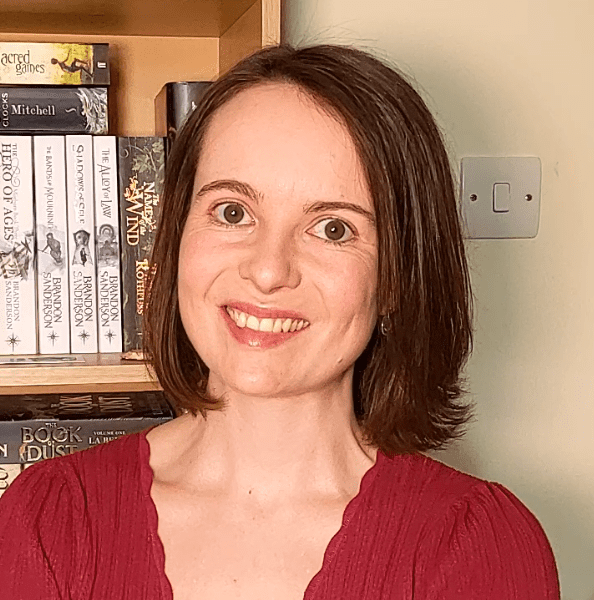
Dominique Carrié
Dominique is an Investment Officer at Ceniarth, a family office focused on impact-first investments globally. She works at the junction of finance and international development to deliver positive impact for underserved and vulnerable populations.
Prior to Ceniarth, she was a manager at Social Finance, a non-profit focused on delivering better social outcomes through innovative practices and she has a track record of designing and managing large and complex multi-stakeholder projects involving local and national governments.
Her expertise lies in strategic planning, financial and risk management, performance management and outcomes measurement.
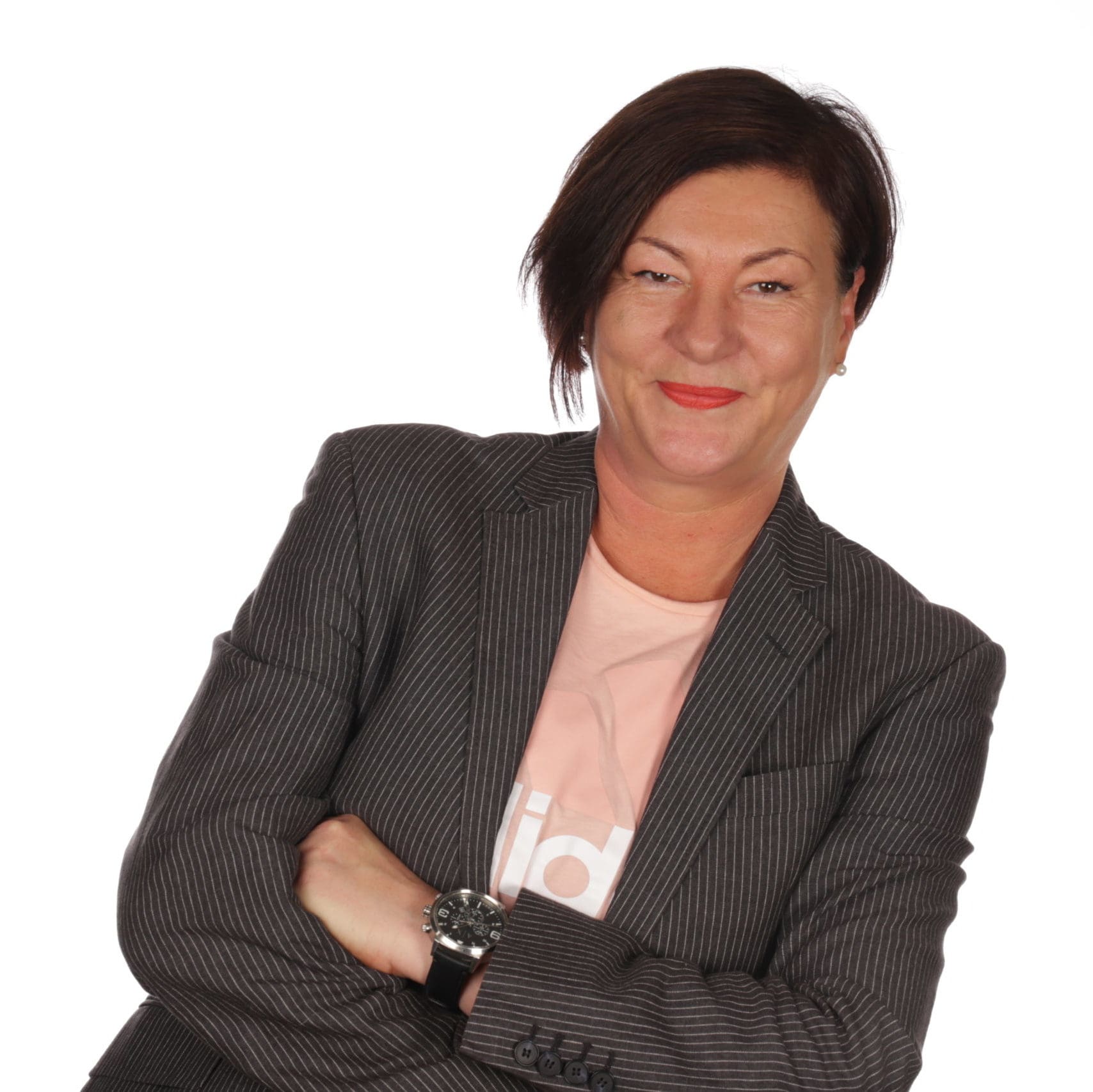
Gaby Jesson
Gaby Jesson is a Marketing and Communications Director with a track record of award-winning growth & creative campaigns across a variety of sectors including flexible workspace, technology, fintech, SaaS, property, retail, fitness, drinks, travel (B2B and B2C) and fashion.
Gaby co-founded and led her own marketing communications agency for 16 years with clients as diverse as Nike, Coca Cola, Nokia, Selfridges and M.I.T! She sold the agency in 2016 and began consulting to startup brands across a range of sectors before taking a role to launch Plexal, an innovation hub for tech startups at the Olympic Park in 2018. In 2019 she was appointed as CMO to Plus X innovation hubs and led the launch of their flagship innovation hub in Brighton as well as website design and building the marketing team and suppliers.
Her professional focus and passion is linking PR & audience engagement with customer acquisition through digital marketing, social media, PR, SEO, Google analytics & best practice digital content, influencer outreach & UK/EMEA campaigns.
In 2021 she launched her own marketing communications agency, The Prospect Society, focused on provided flexible and cost effective marketing growth support for startups and lean scaleups.
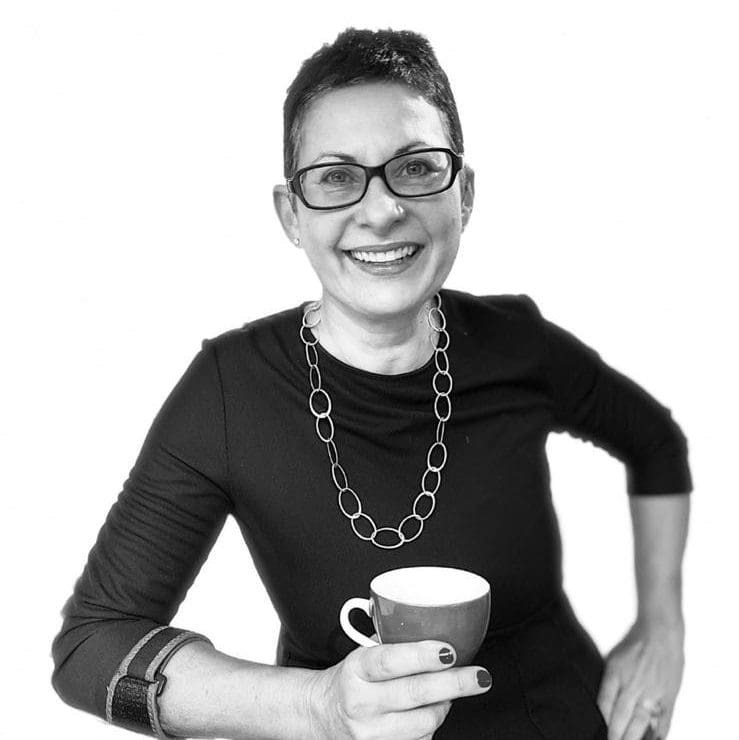
Louise Kingsley
Louise has over twenty years experience as an energy and infrastructure lawyer and has spent the last 10 years working solely in the renewable energy field. She is Legal Director for the world’s largest independent renewable energy company, working on the development of onshore windfarm, solar park and energy storage projects and promoting the urgent need for a transition to a net zero carbon emission future.
Louise has a keen interest in community energy projects and has volunteered as a Policy consultant for the charity Pure Leapfrog which promotes community ownership, sustainability and decarbonisation.
CIC Board
Grace Reid
Grace is a Critical Friend, Consultant, and Founder of URLIFEURBUSINESS. She is passionate about using her professional and lived experience to support organisations to move beyond the tick box approach to Diversity & Inclusion. She achieves this by designing creative, interactive interventions that support businesses to be the change, make the change and model the change.
She has over 15 years experience in the commercial, non-profit, and higher education sector, transforming lives and businesses one conversation at a time. She is unapologetically curious, likes to challenge the status quo, and never stops asking ‘what if?’.
Earlier this year Grace was delighted to be invited to join the board of Trustees of Impact Hub King’s Cross’ CIC, which helped her to start her entrepreneurial journey: Paddington Development Trust (an organisation that is committed to giving the power back to the communities that they serve). Her mission is to help organisations create equitable workplace cultures of belonging where all employees are empowered to thrive.
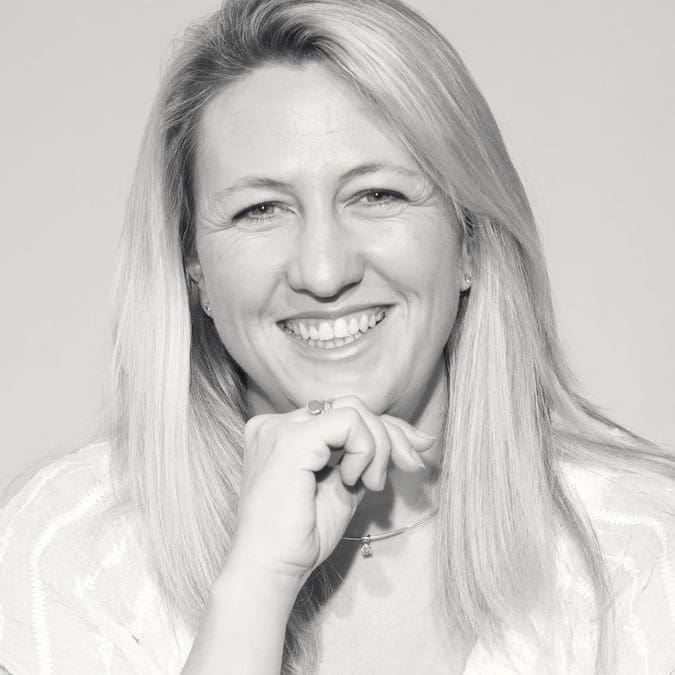
Hannah Watkins
Following a degree in Hispanic Studies, and postgraduate qualifications in Law, Hannah spent six years as a lawyer at Freshfields Bruckhaus Deringer, specialising in Dispute Resolution and International Arbitration. She moved into the commercial world, motivated by a desire to work with entrepreneurially-minded, innovative businesses, founding her own magazine on education and child development.
As a former Business and Operations Director of a communications agency focused on the creative industries, place-making and cultural institutions and, more recently, Business Advisor advising or “trouble-shooting” for organisations, including a documentary film production company, and a children’s mental health charity, she helps structure and optimise business growth and potential.
She has recently completed the masters’ level Financial Times Non-Executive Director Diploma. Hannah’s professional motivation lies in providing non-judgmental and constructive challenge to young businesses that have an impact on society and in championing social entrepreneurs within a collaborative and ethical community.
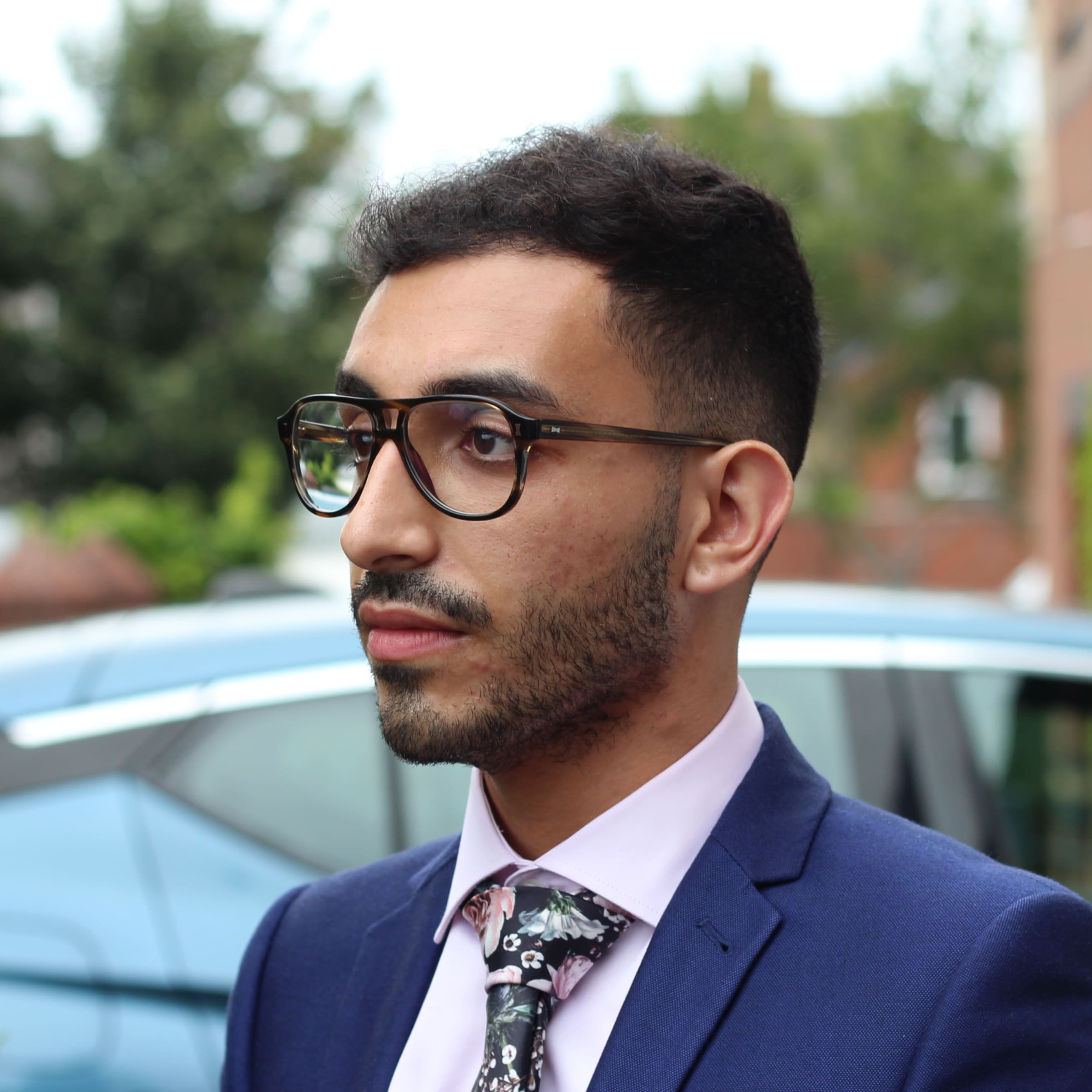
Mercurius Saad
Video games shaped his childhood, studying mathematics developed his discipline and his passion for storytelling blossomed into a career in marketing…which lasted 3 years, before he became obsessed with wanting to impact people’s lives through technology.
Mercurius transformed this energy into a company called Tutorbloc, which he now runs full-time from his bedroom in Greenwich. Tutorbloc helps educators launch, manage and grow their business with the purpose of turning their knowledge into income. Outside of work, you can find him on the radio, reading WIRED magazine or running at 4am.
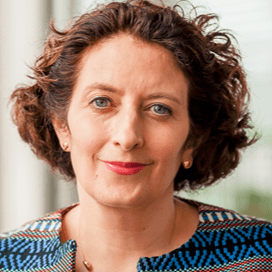
Oriana Pound
As chief of staff for PwC’s Global Clients & Industries network, Oriana is a strategic leader in a complex global environment. She works with PwC’s leaders and teams worldwide to build and strengthen their businesses, and challenges them to focus on how to best support their clients in both developed and developing markets. In this role, she’s worked with all types of organisations – including ambitious startups, major global corporations and leading family businesses – as well as many not-for-profits and social enterprises. She’s passionate about helping others to be successful: whether this is working with entrepreneurs or the next generation of family business owners, and her day-to-day work leading teams. She is a former Board Member of CodeFirstGirls, a multi-award-winning organisation working to increase the number of women in tech.
Her work in global organisations fits well with an international background. She was born in the US, but raised in Morocco and the UK. Her love of travel has resulted in many different adventures including a role as group leader for the Jagriti Yatra, an inspiring and ambitious train journey that takes hundreds of India’s highly motivated youth, especially those who are from small towns and villages of India, on a 15 day, 8000 km national trip to meet the role models – social and business entrepreneurs – of the country. The vision of Jagriti is ‘building India through enterprise’.
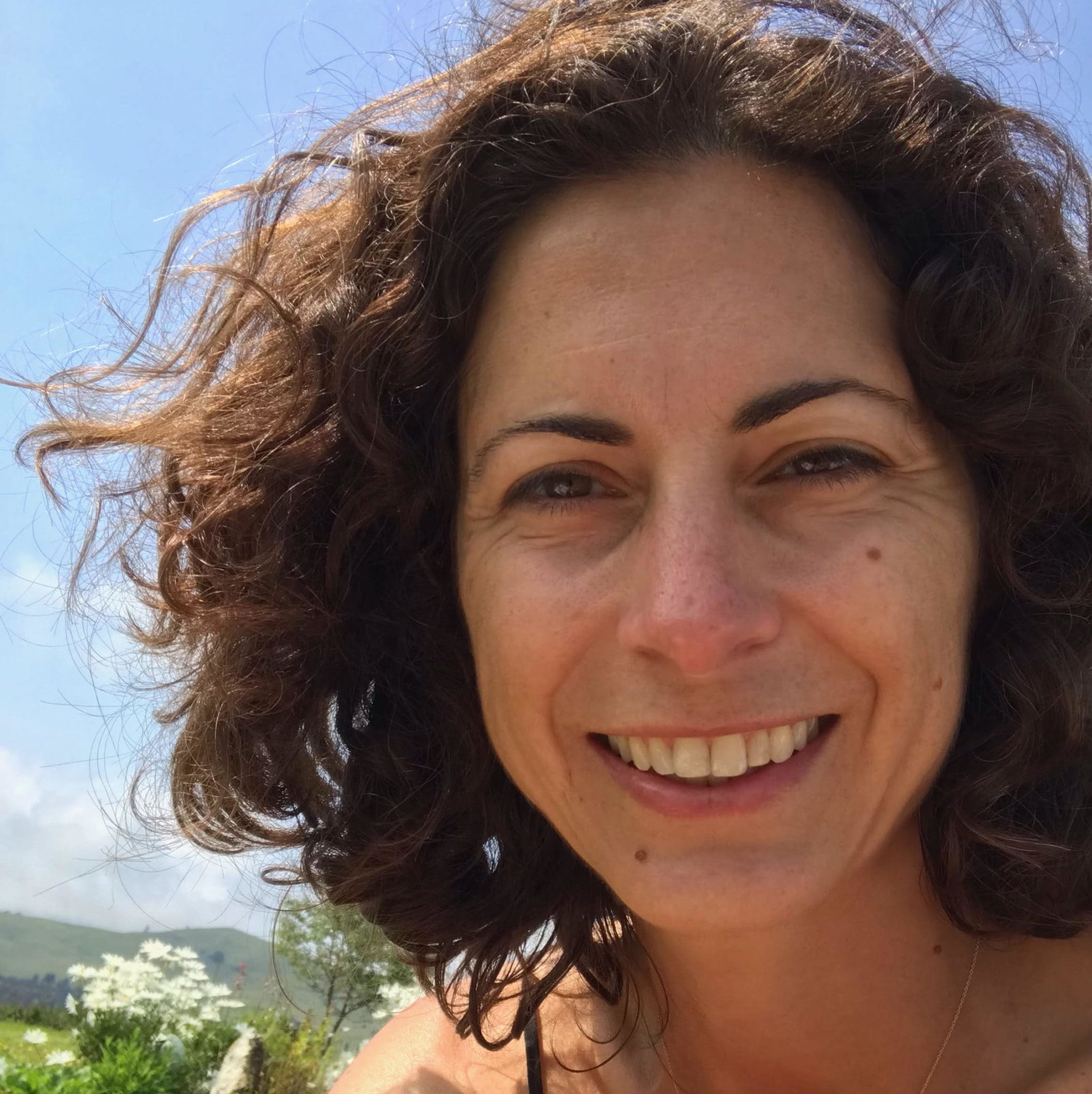
Stephanie Haywood
Stephanie is a senior business executive with 20 years of international sales, customer engagement and loyalty marketing experience spanning online and offline luxury retail. Her career has included a mix of roles at companies including Chanel, Net-A-Porter, and Selfridges, as well as entrepreneurial experiences in Europe and Asia.
She now plans to use the rest of her career to have a positive impact on the world and is a strong believer that entrepreneurship and innovation have a major role to play in solving the key challenges of our time.
Discover the full team carrying out the work for Impact Hub King’s Cross.
Get the latest opportunities, news, and offers to inspire, connect and enable you
